Psychoanalytic
Theory and Clinical Relevance What Makes a Theory Consequential for Practice Louis S. Berger
Visit to download the full and correct content document: https://textbookfull.com/product/psychoanalytic-theory-and-clinical-relevance-what-ma kes-a-theory-consequential-for-practice-louis-s-berger/

More products digital (pdf, epub, mobi) instant download maybe you interests ...

Psychoanalytic Thinking A Dialectical Critique of Contemporary Theory and Practice 1st Edition Donald L. Carveth
https://textbookfull.com/product/psychoanalytic-thinking-adialectical-critique-of-contemporary-theory-and-practice-1stedition-donald-l-carveth/

Through life Engineering Services Motivation Theory and Practice 1st Edition Louis Redding
https://textbookfull.com/product/through-life-engineeringservices-motivation-theory-and-practice-1st-edition-louisredding/

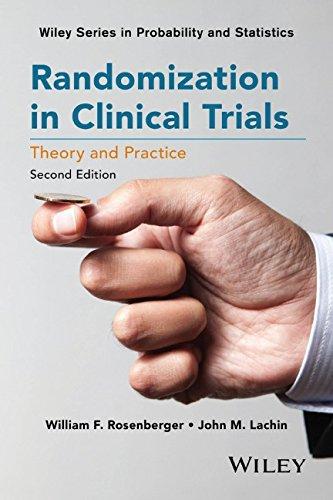
Ferenczi s Influence on Contemporary Psychoanalytic Traditions Lines of Development Evolution of Theory and Practice Over the Decades Aleksandar Dimitrijevi■
https://textbookfull.com/product/ferenczi-s-influence-oncontemporary-psychoanalytic-traditions-lines-of-developmentevolution-of-theory-and-practice-over-the-decades-aleksandardimitrijevic/
Randomization in clinical trials : theory and practice 2nd Edition Lachin
https://textbookfull.com/product/randomization-in-clinicaltrials-theory-and-practice-2nd-edition-lachin/

Freud at Work On the History of Psychoanalytic Theory and Practice with an Analysis of Freud s Patient Calendar Ulrike May
https://textbookfull.com/product/freud-at-work-on-the-history-ofpsychoanalytic-theory-and-practice-with-an-analysis-of-freud-spatient-calendar-ulrike-may/

Hemodiafiltration: Theory, Technology and Clinical Practice 1st Edition Menso J. Nubé
https://textbookfull.com/product/hemodiafiltration-theorytechnology-and-clinical-practice-1st-edition-menso-j-nube/

Dose Finding Designs for Early Phase Cancer Clinical Trials A Brief Guidebook to Theory and Practice Takashi
Daimon
https://textbookfull.com/product/dose-finding-designs-for-earlyphase-cancer-clinical-trials-a-brief-guidebook-to-theory-andpractice-takashi-daimon/

Psychoanalytic Approaches to Problems in Living Addressing Life s Challenges in Clinical Practice
Sandra Buechler
https://textbookfull.com/product/psychoanalytic-approaches-toproblems-in-living-addressing-life-s-challenges-in-clinicalpractice-sandra-buechler/

Caplan s Stroke A Clinical Approach 5th Edition Louis R. Caplan
https://textbookfull.com/product/caplan-s-stroke-a-clinicalapproach-5th-edition-louis-r-caplan/
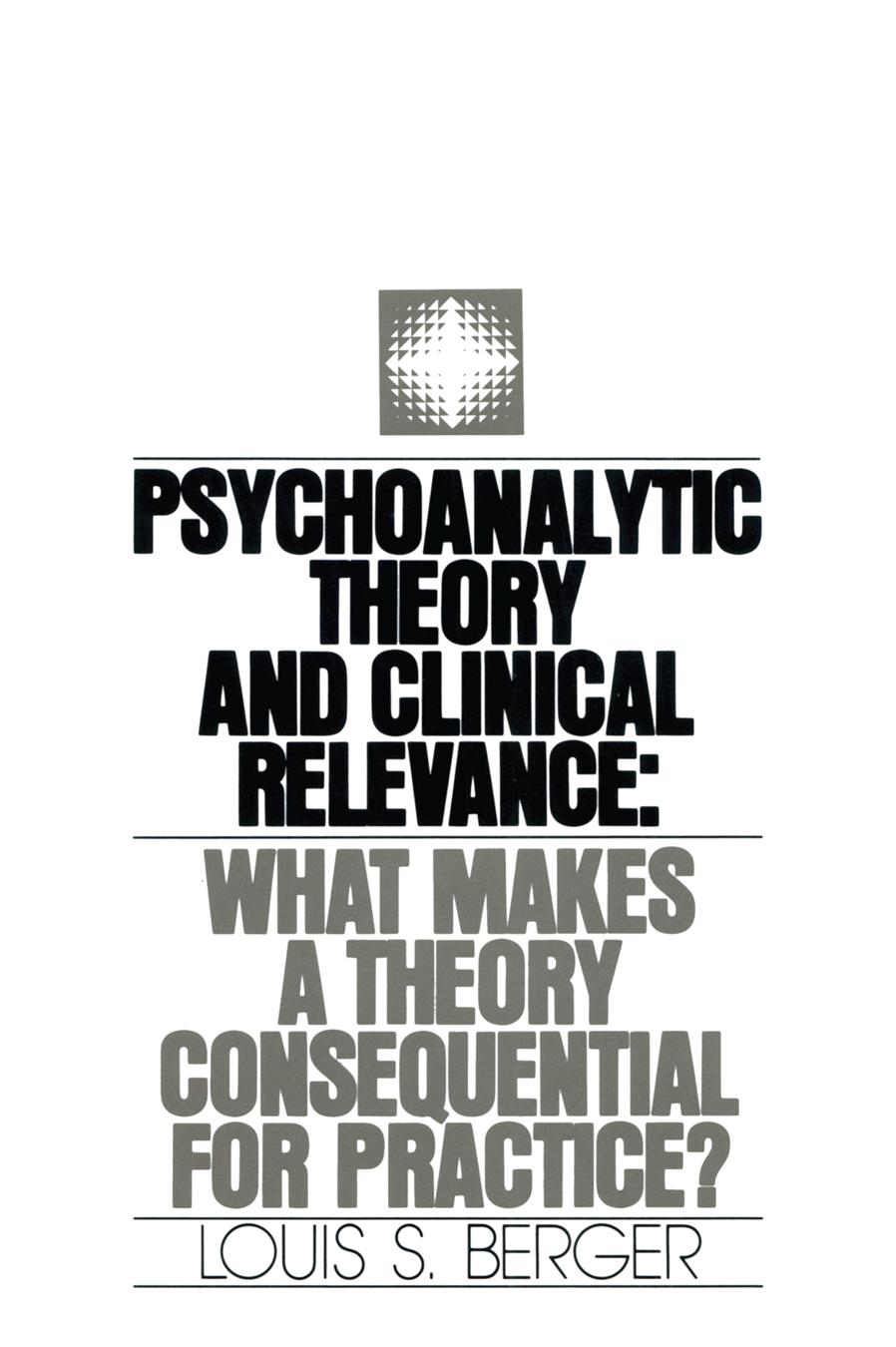


http://taylorandfrancis.com
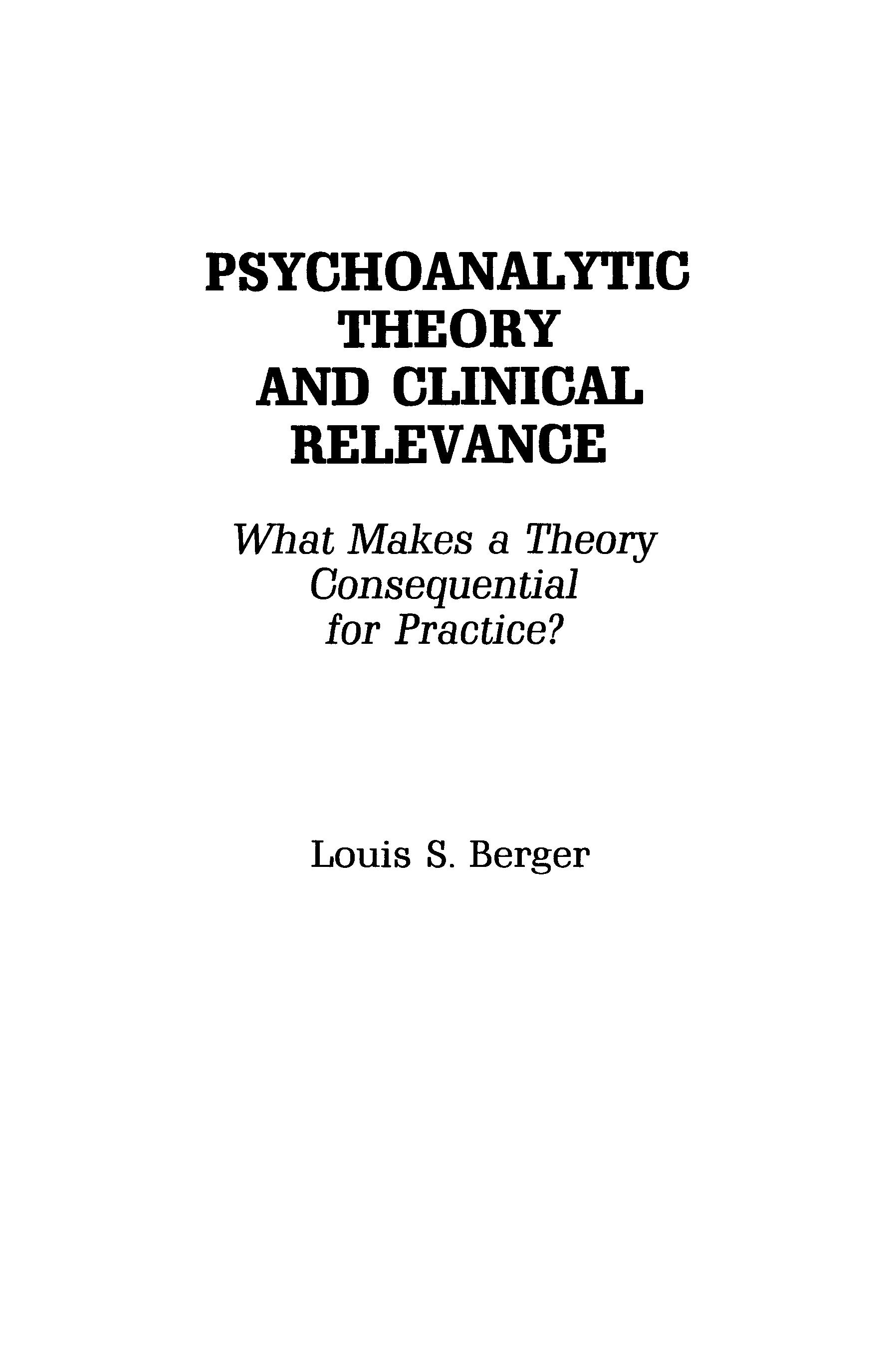
ROUTLEDGE
Routledge
Taylor&FrancisGroup
LONDONANDNEWYORK
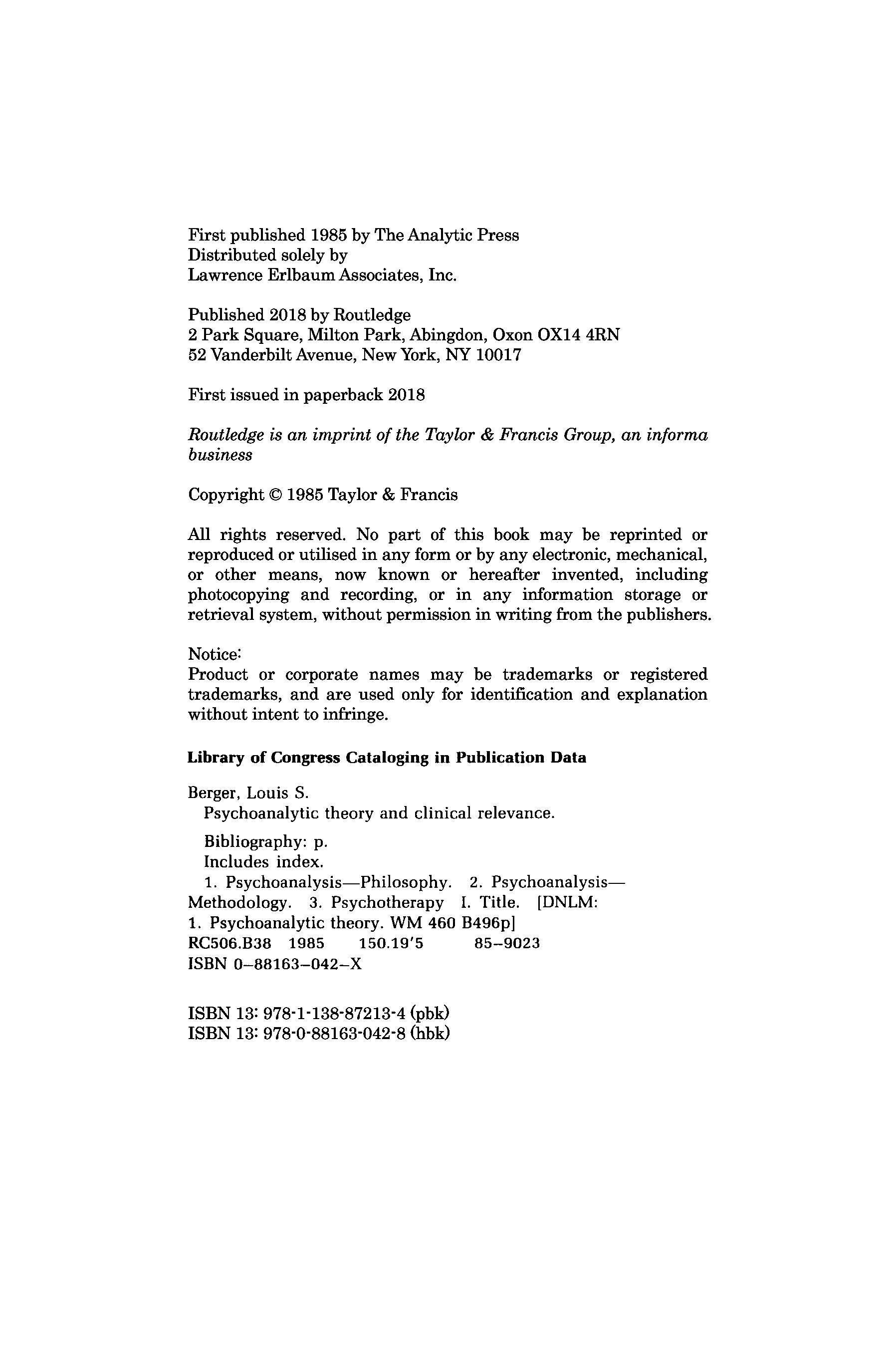
First published 1985 by The Analytic Press
Distributed solely by Lawrence Erlbaum Associates, Inc.
Published 2018 by Routledge
2 Park Square, Milton Park, Abingdon, Oxon OX14 4RN 52 Vanderbilt Avenue, New York, NY 10017
First issued in paperback 2018
Routledge is an imprint of the Taylor & Francis Group, an informa business
Copyright© 1985 Taylor & Francis
All rights reserved. No part of this book may be reprinted or reproduced or utilised in any form or by any electronic, mechanical, or other means, now known or hereafter invented, including photocopying and recording, or in any information storage or retrieval system, without permission in writing from the publishers.
Notice:
Product or corporate names may be trademarks or registered trademarks, and are used only for identification and explanation without intent to infringe.
Library of Congress Cataloging in Publication Data
Berger, Louis S. Psychoanalytic theory and clinical relevance.
Bibliography: p. Includes index.
1. Psychoanalysis-Philosophy. 2. PsychoanalysisMethodology. 3. Psychotherapy I. Title. [DNLM: 1. Psychoanalytic theory. WM 460 B496p]
RC506.B38 1985 150.19'5 85-9023
ISBN 0-88163-042-X
ISBN 13: 978-1-138-87213-4 (pbk)
ISBN 13: 978-0-88163-042-8 (hbk)
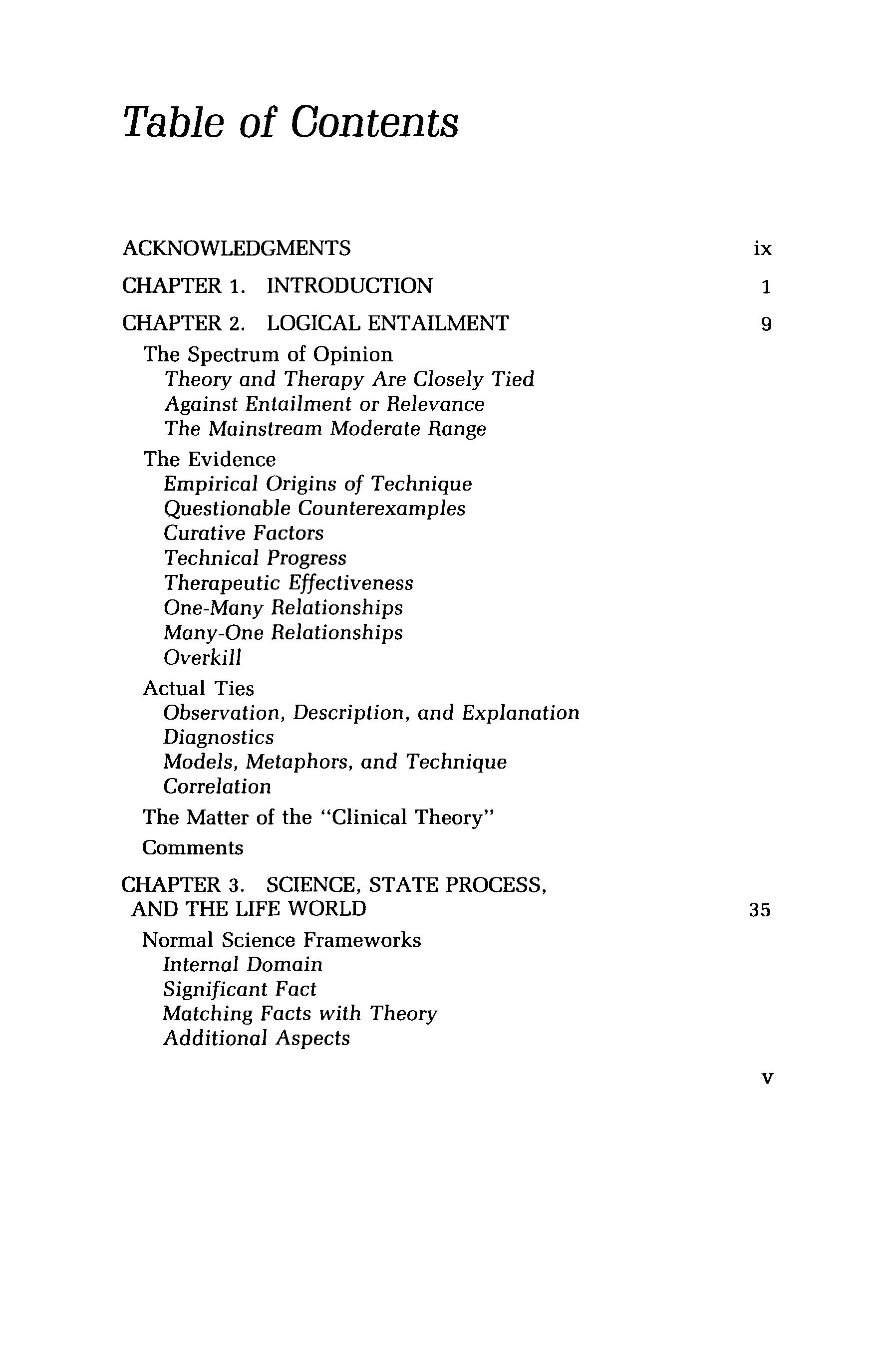
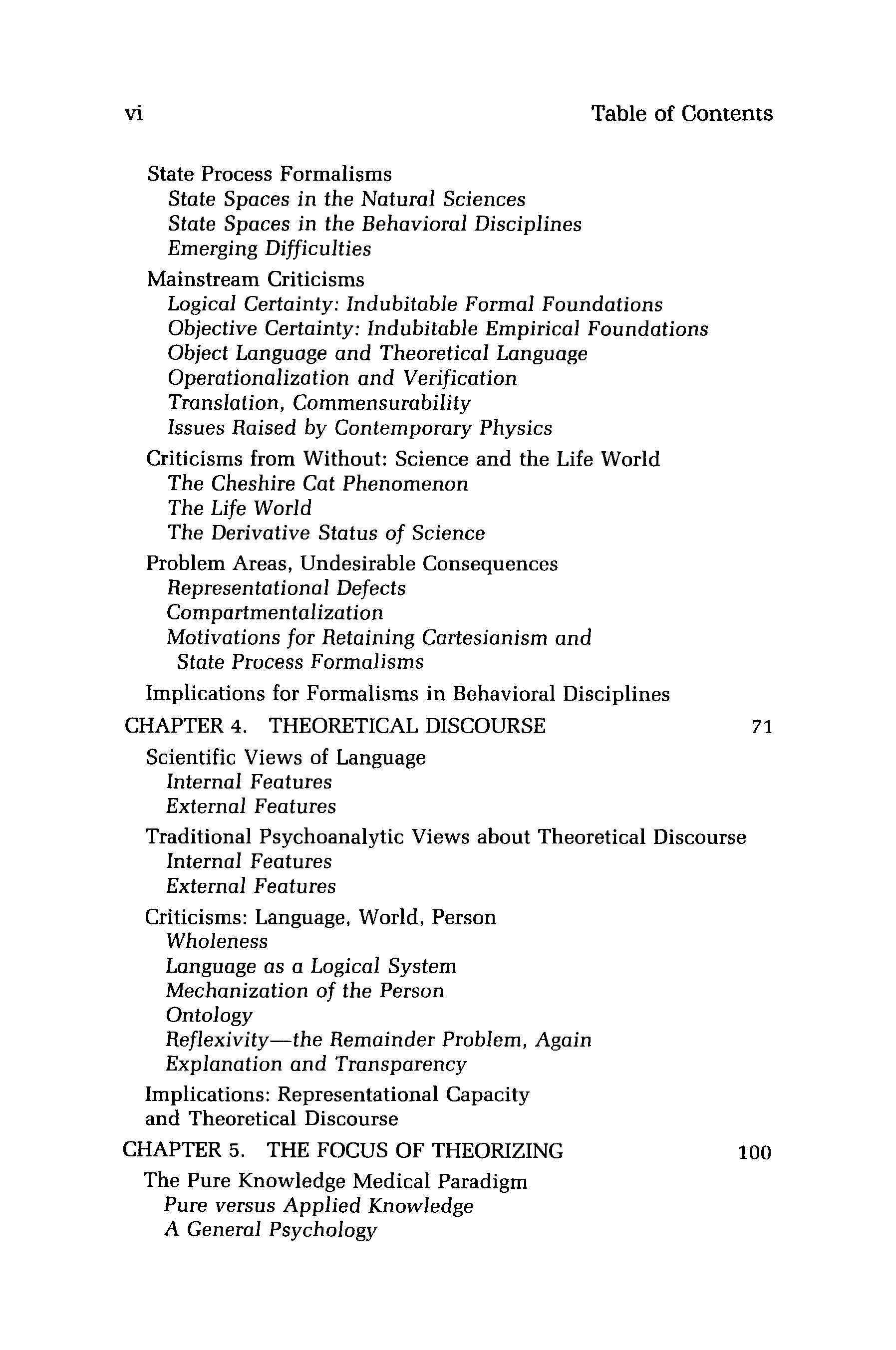
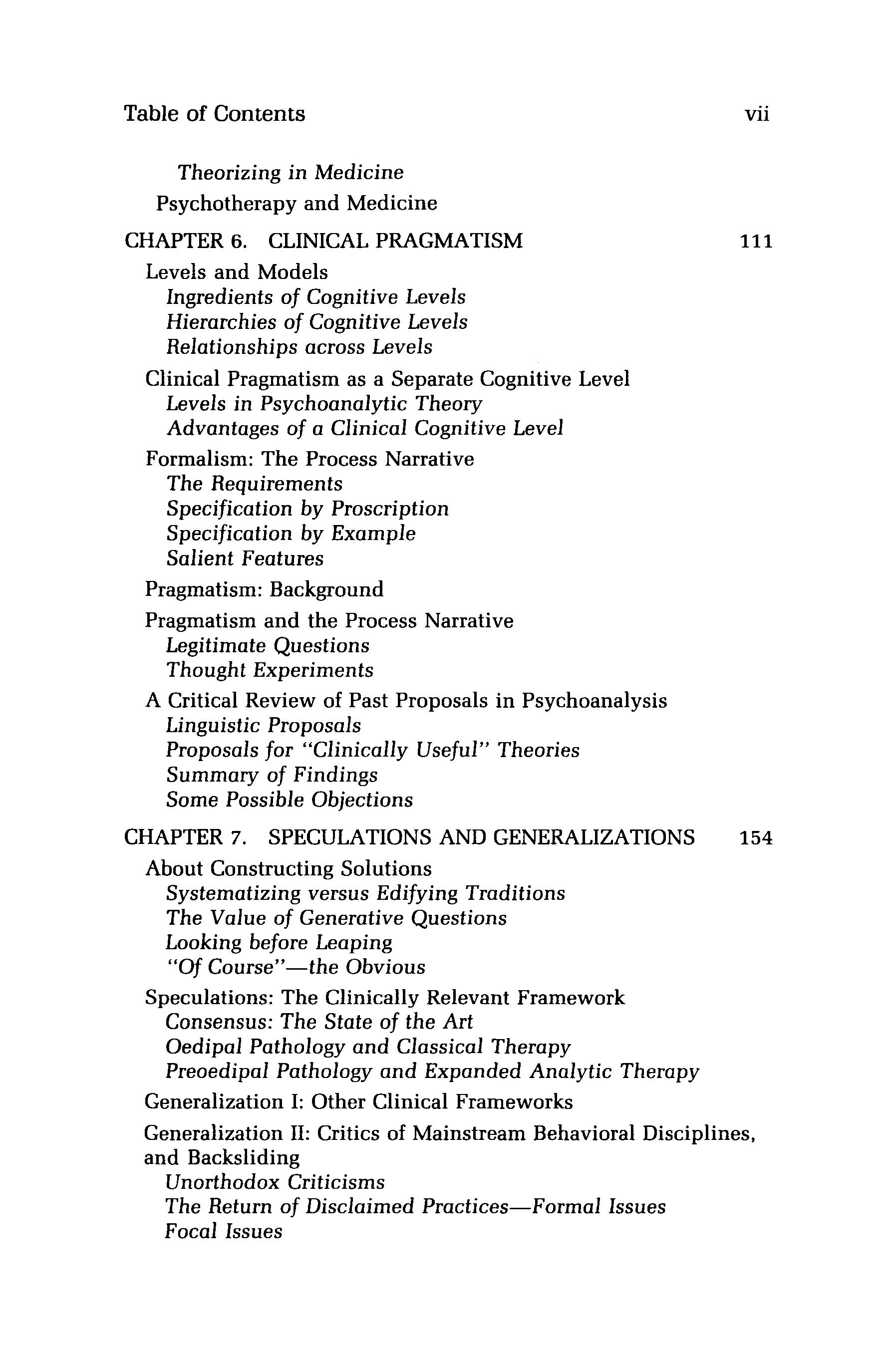
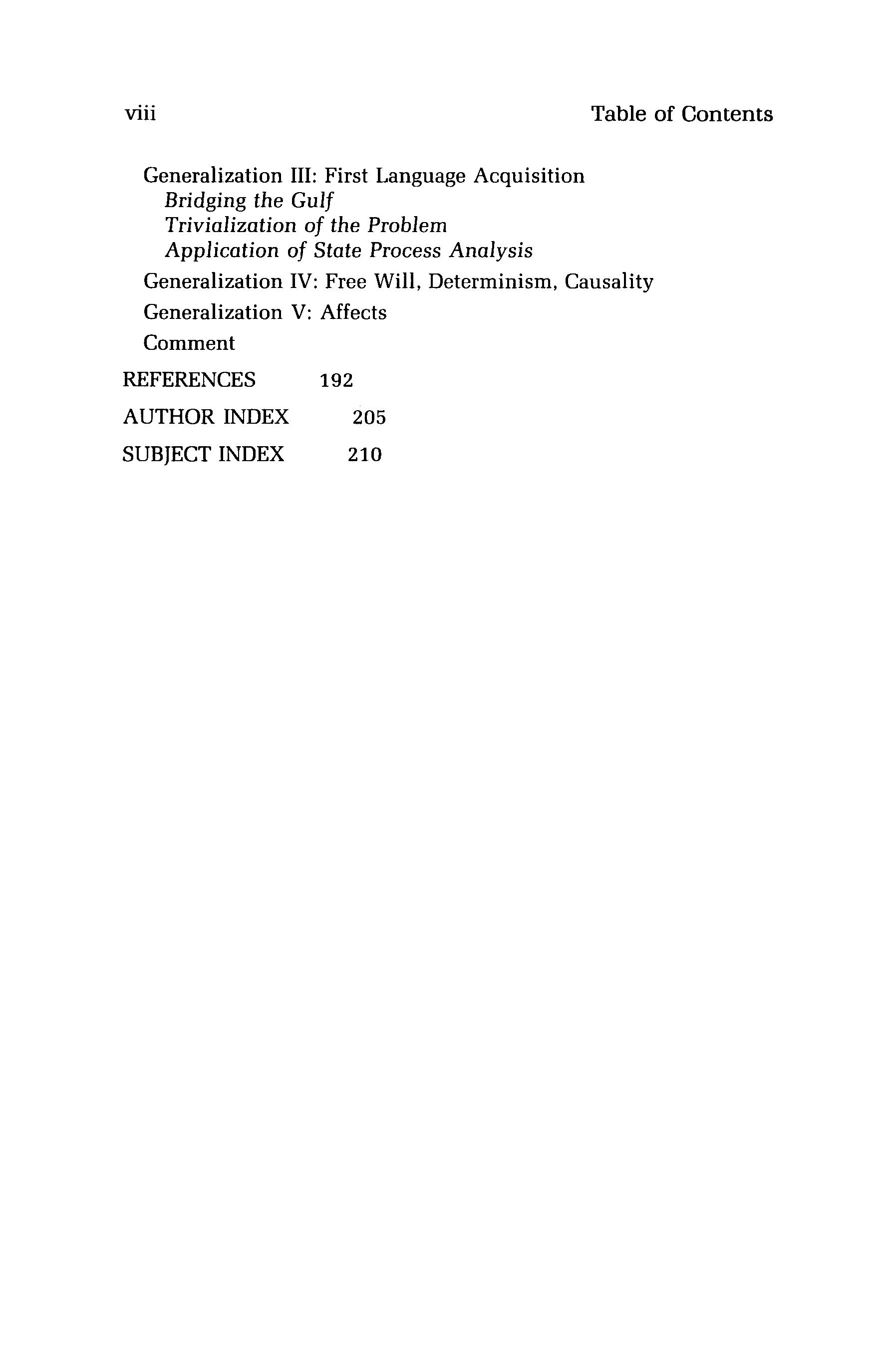
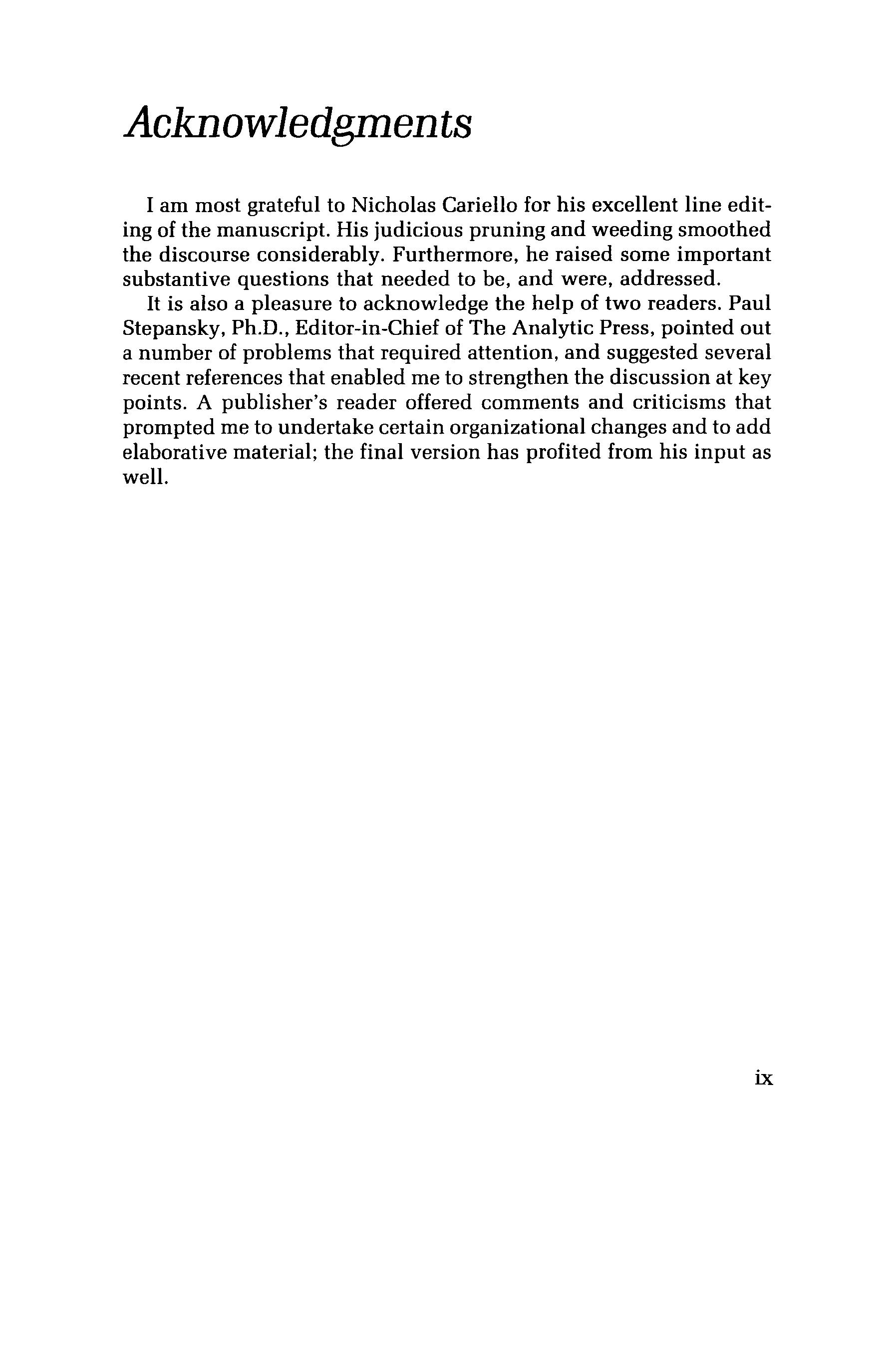
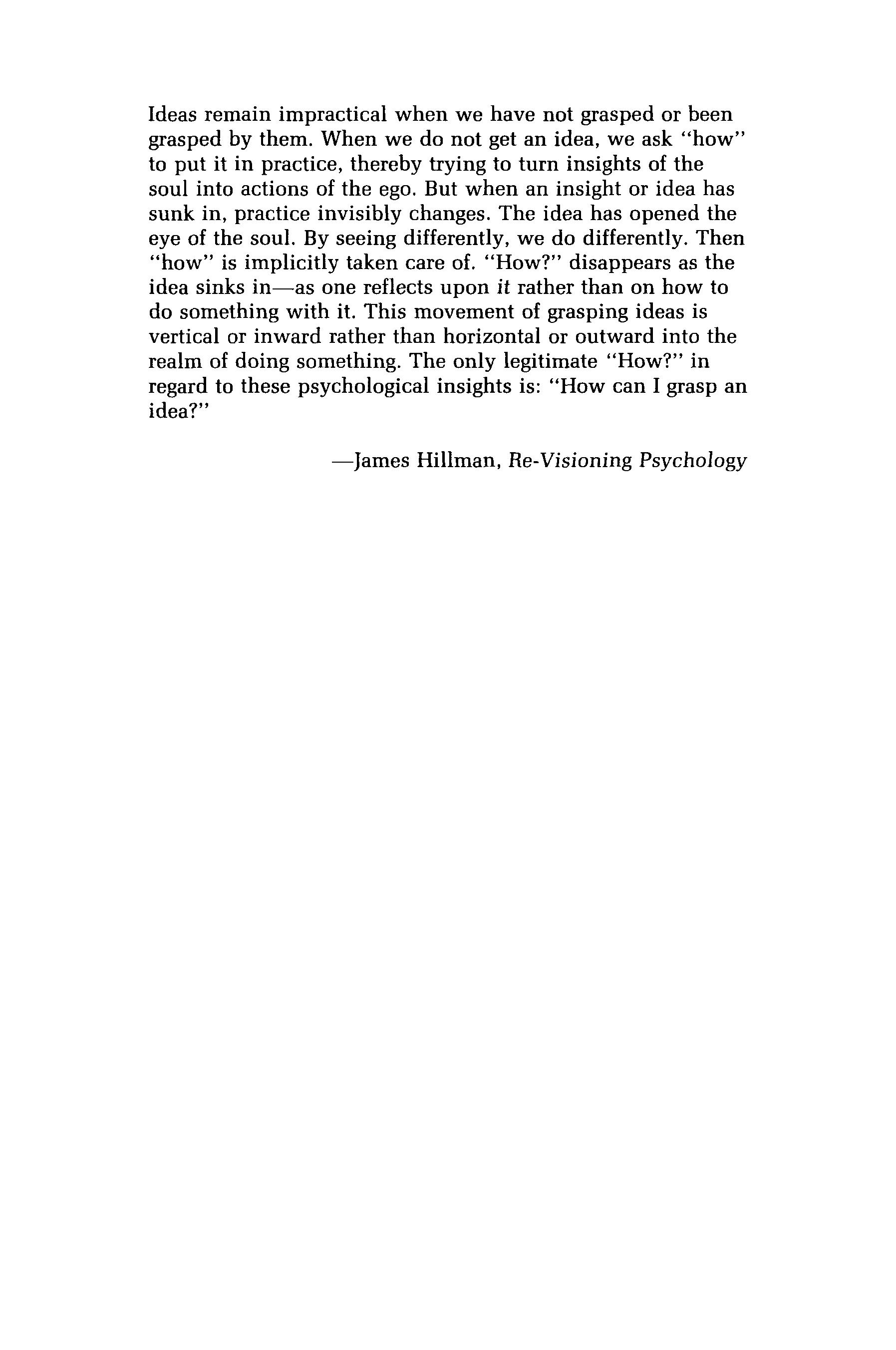
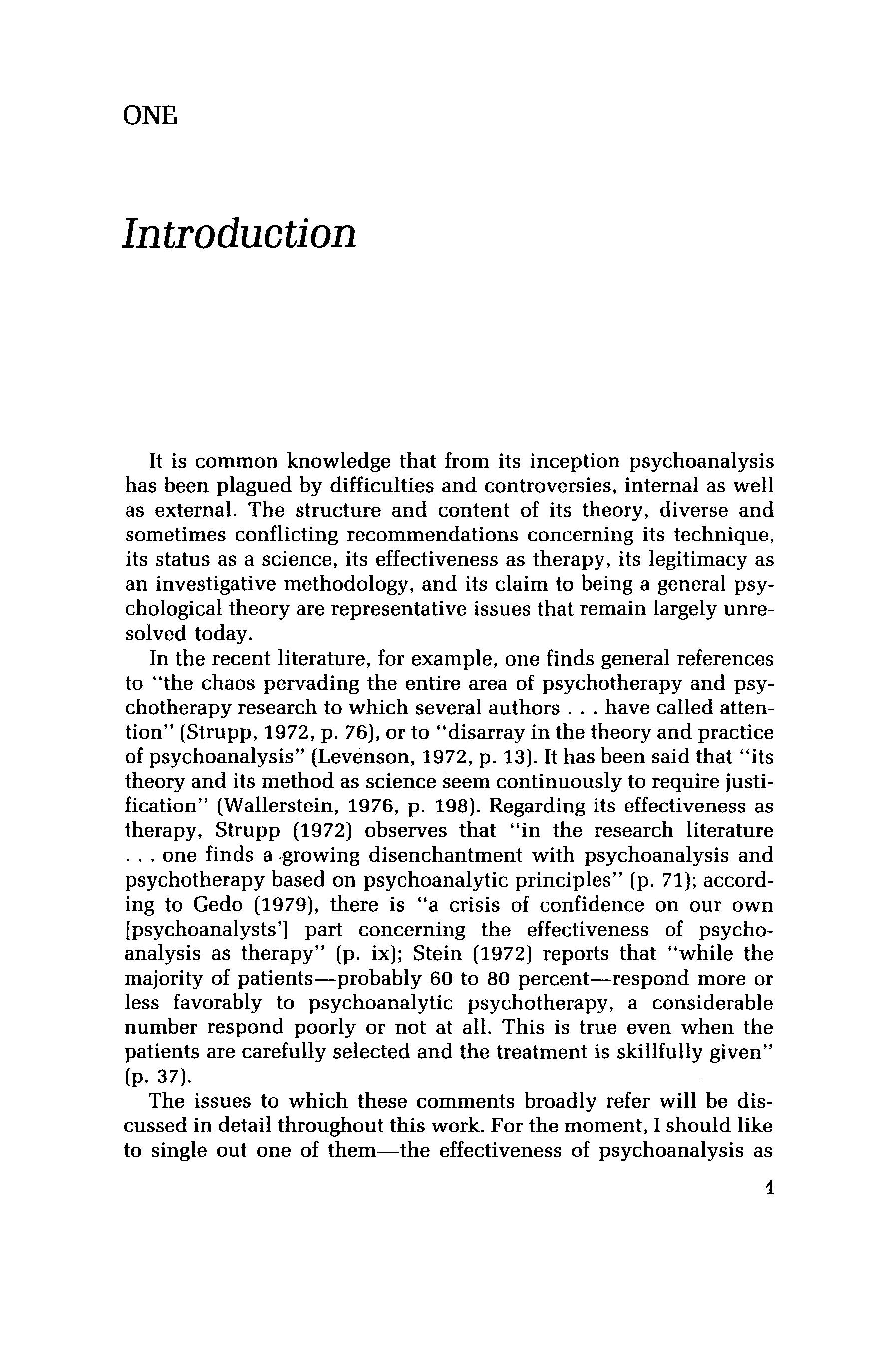
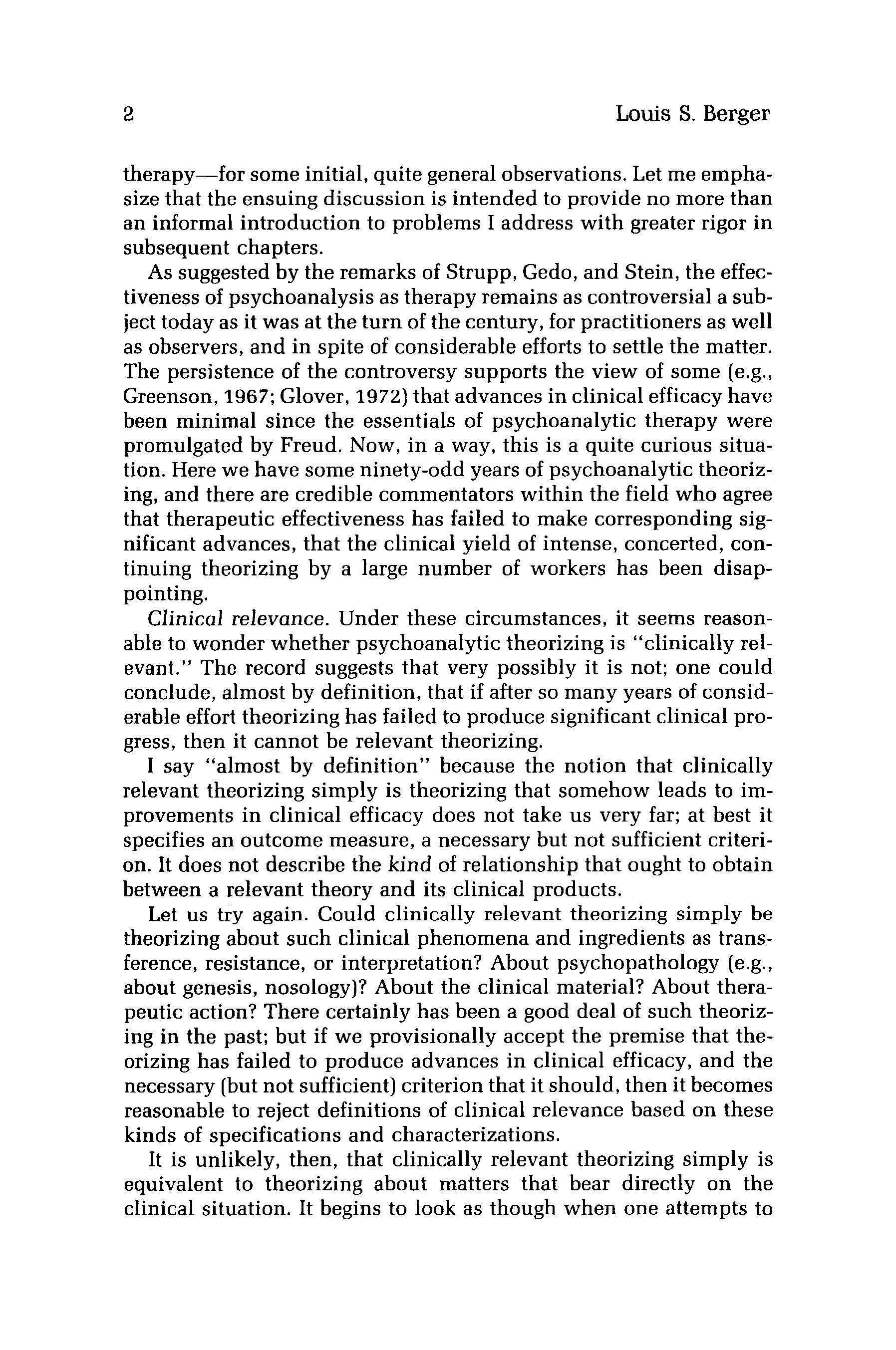
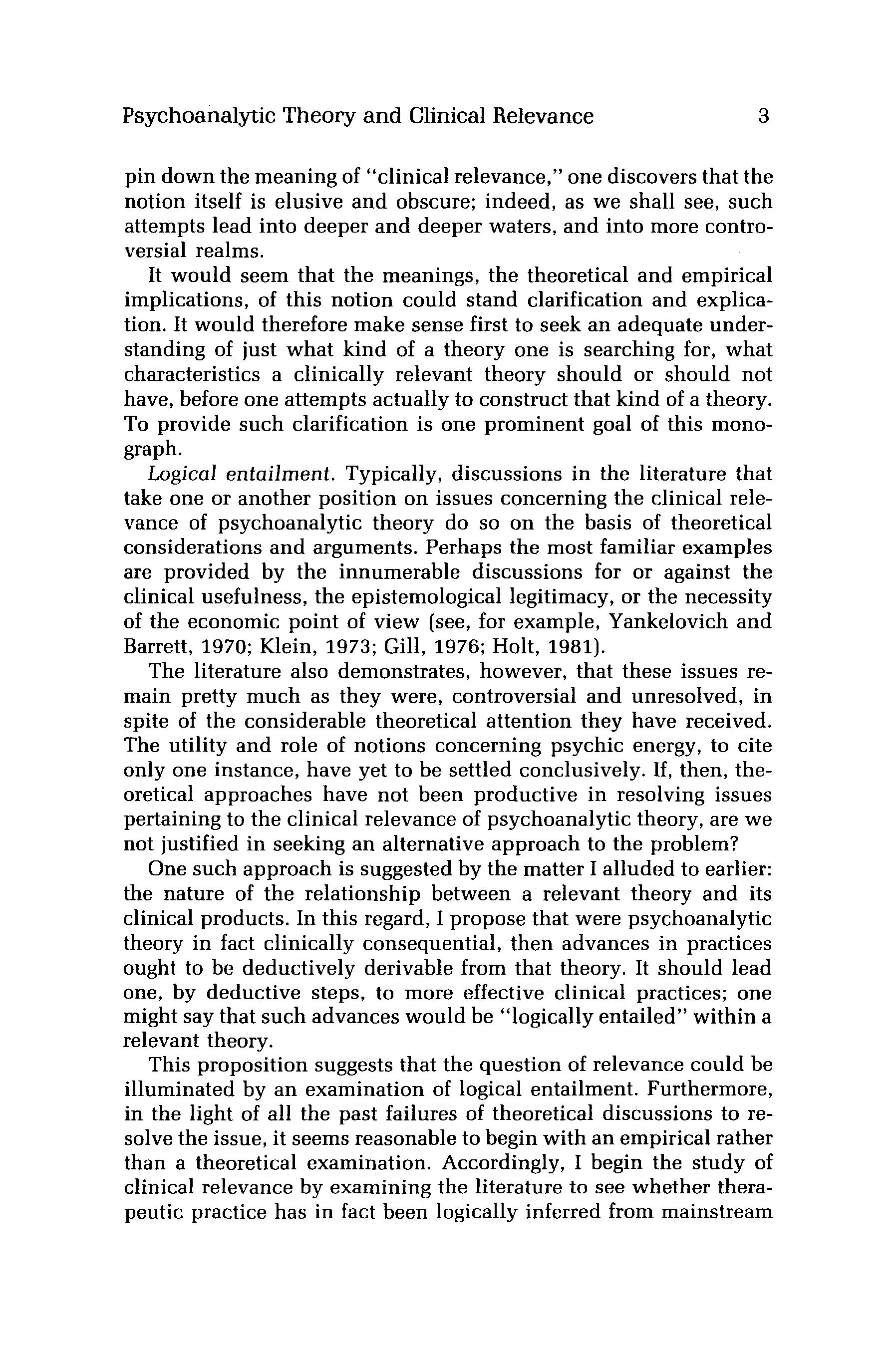
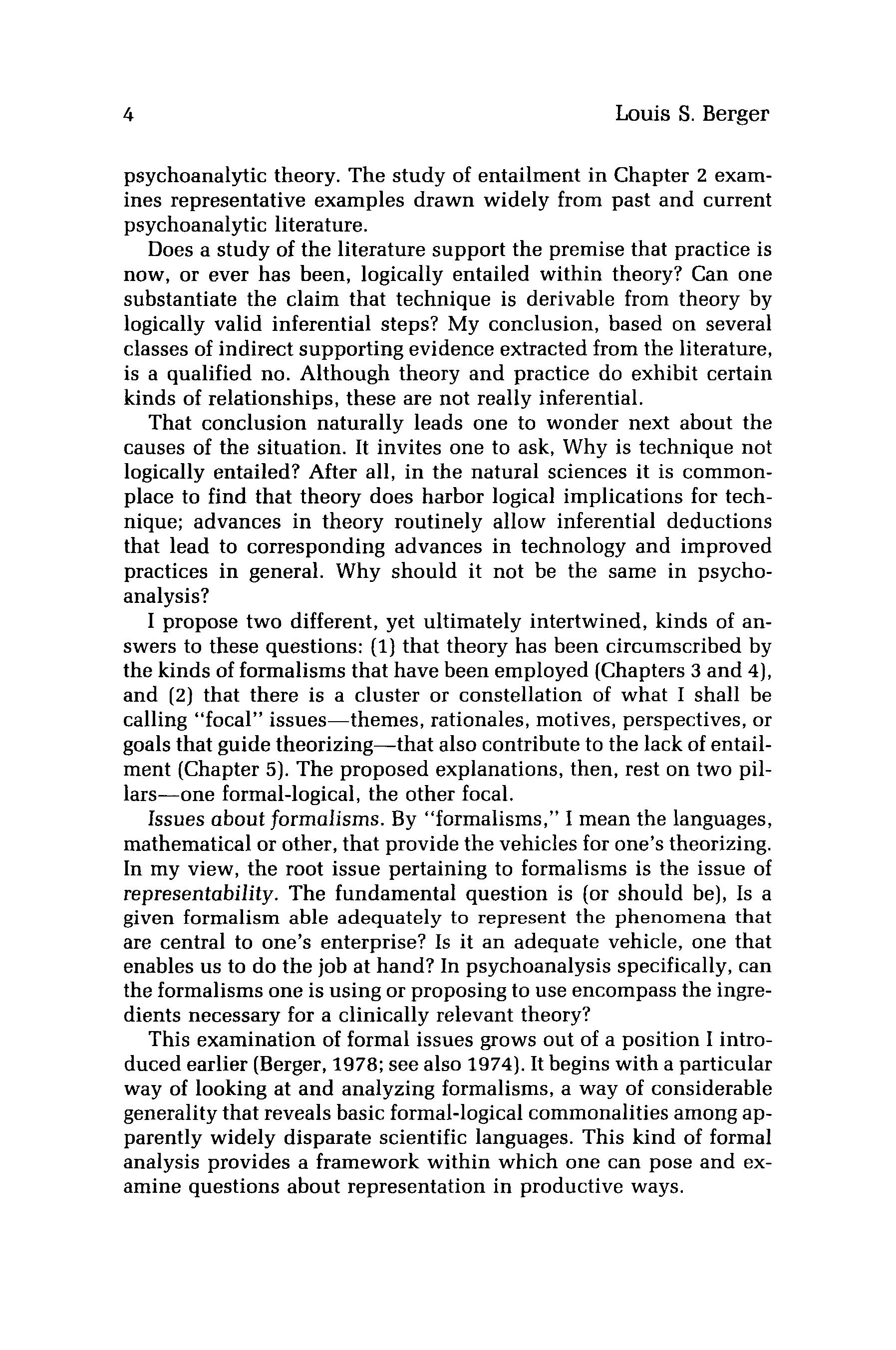
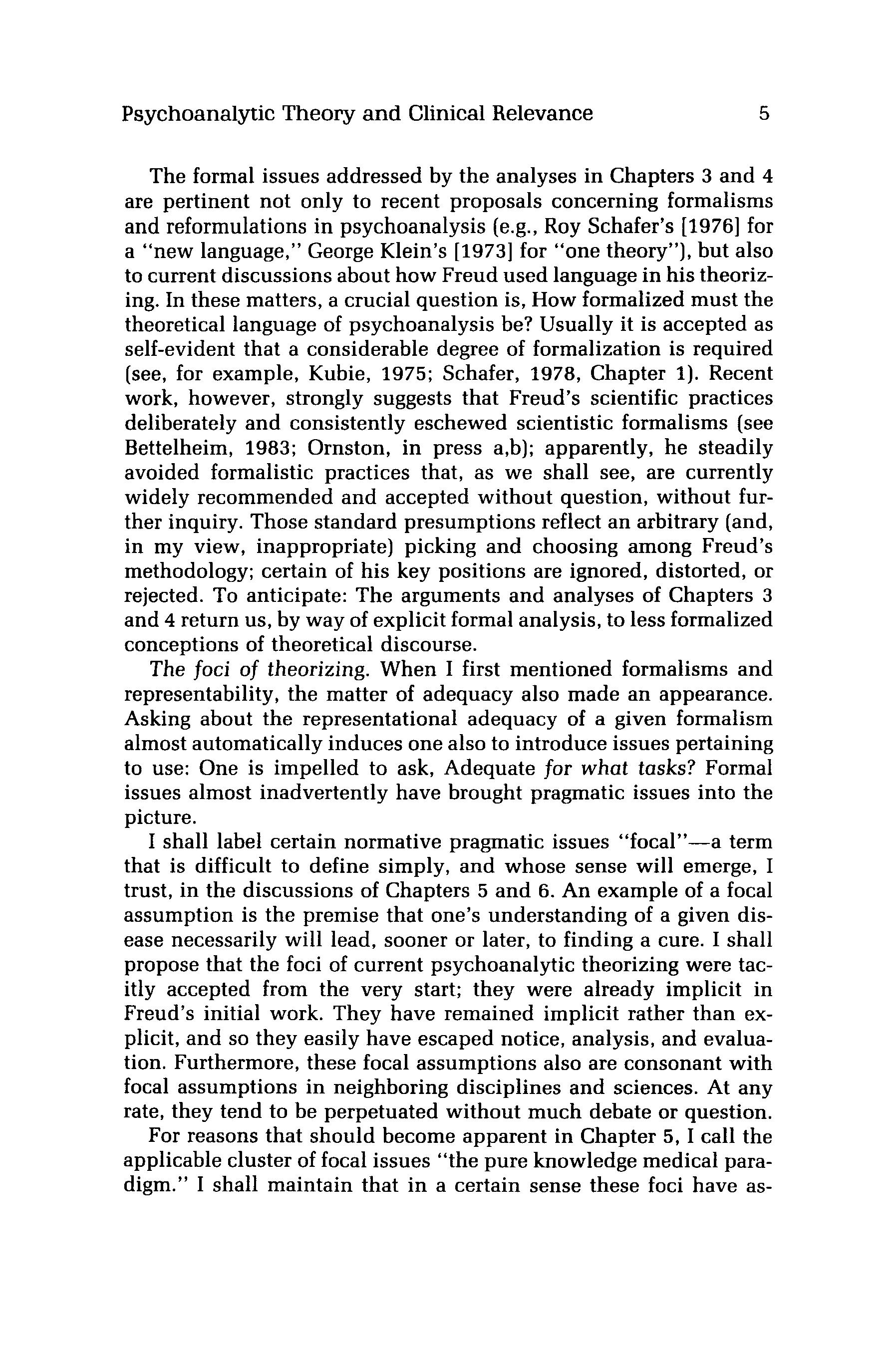
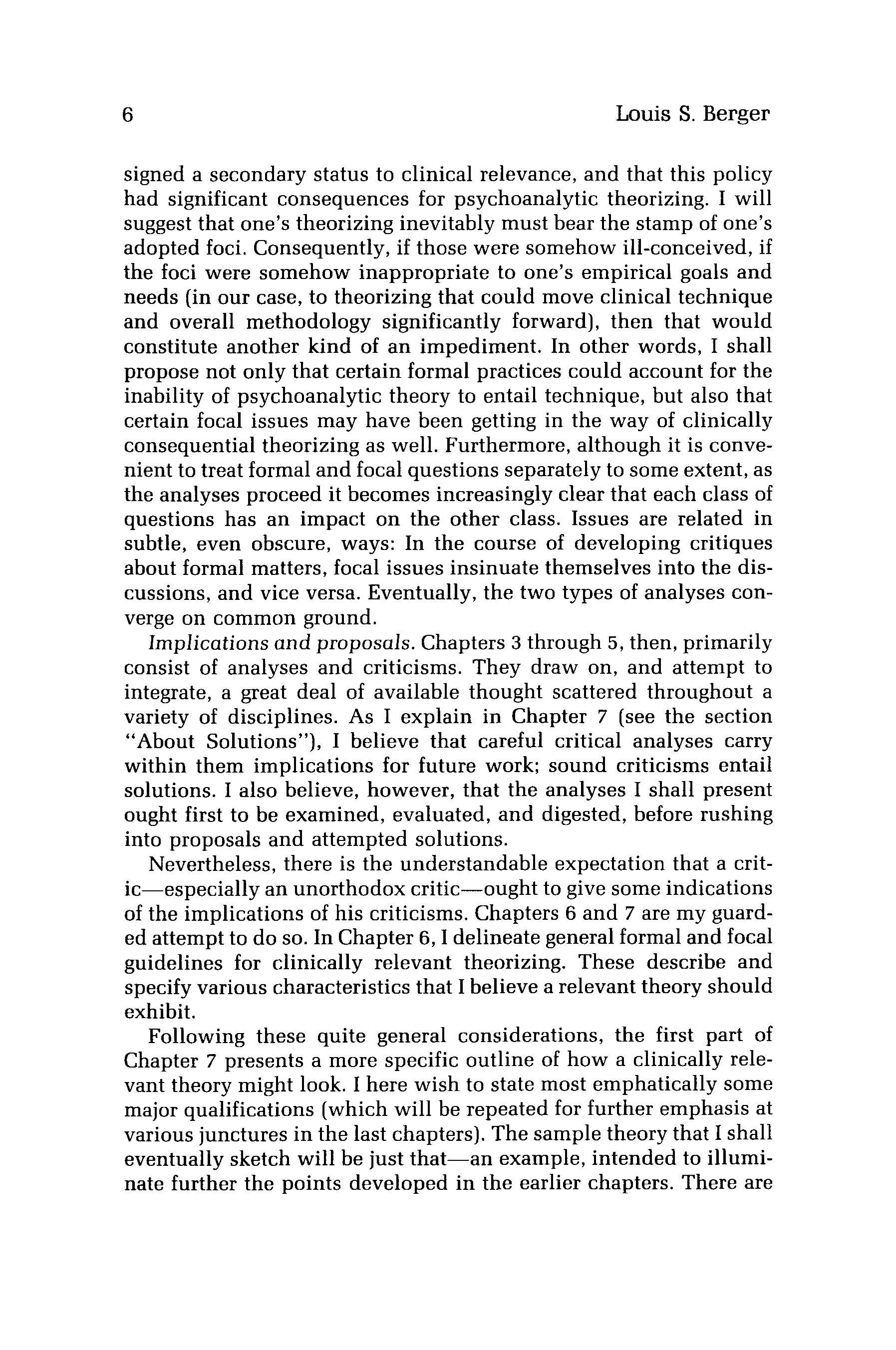
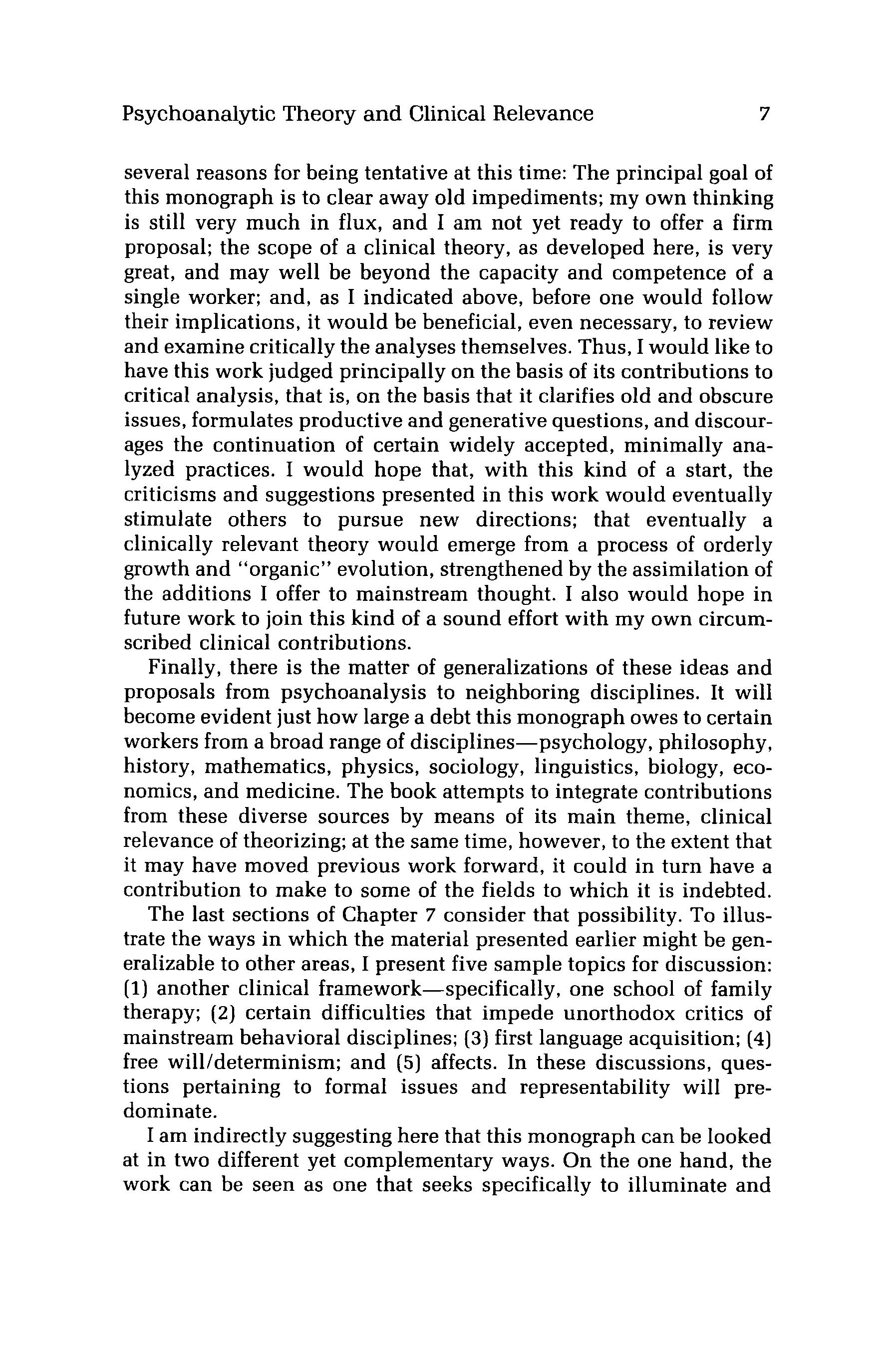
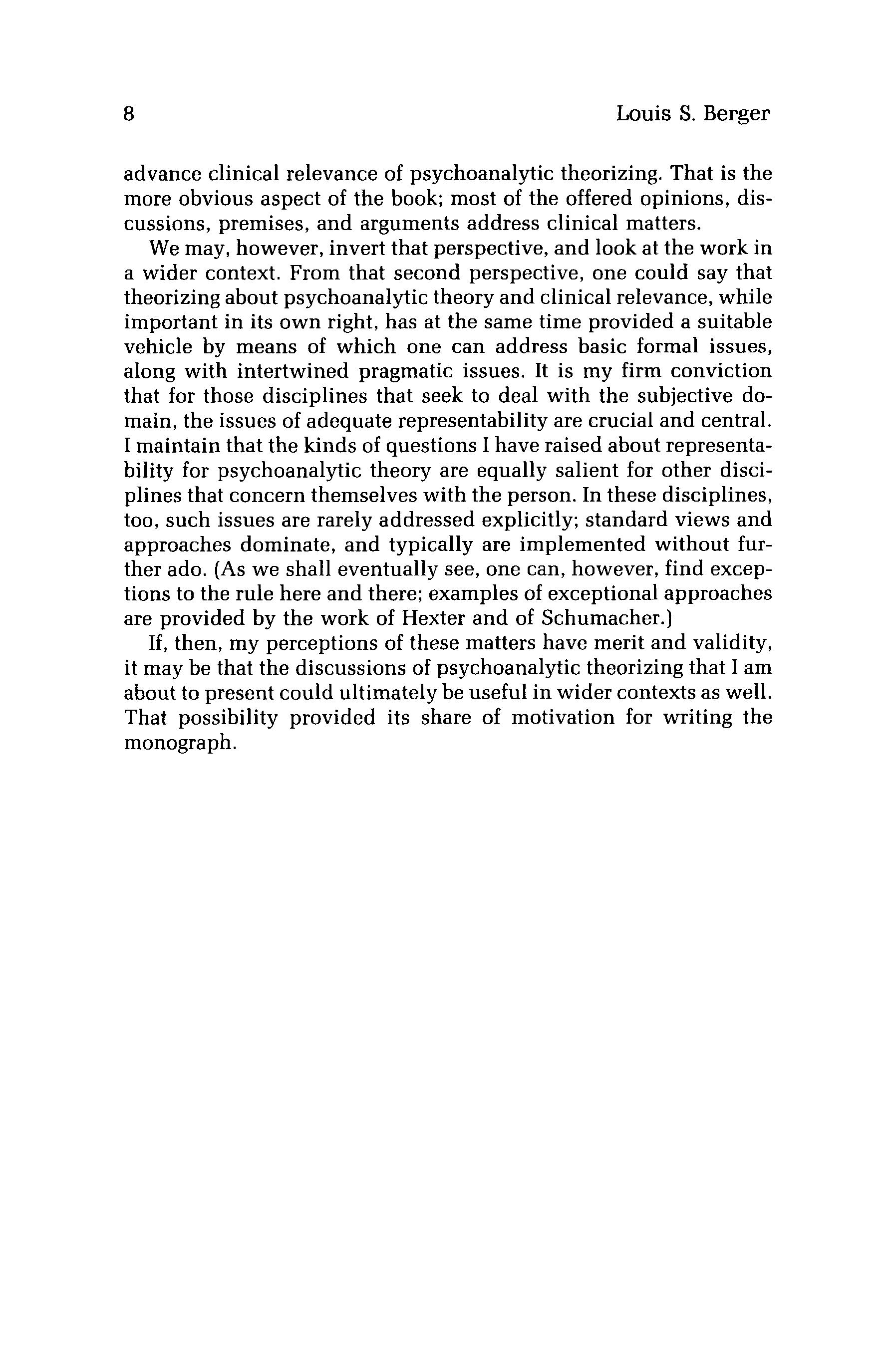
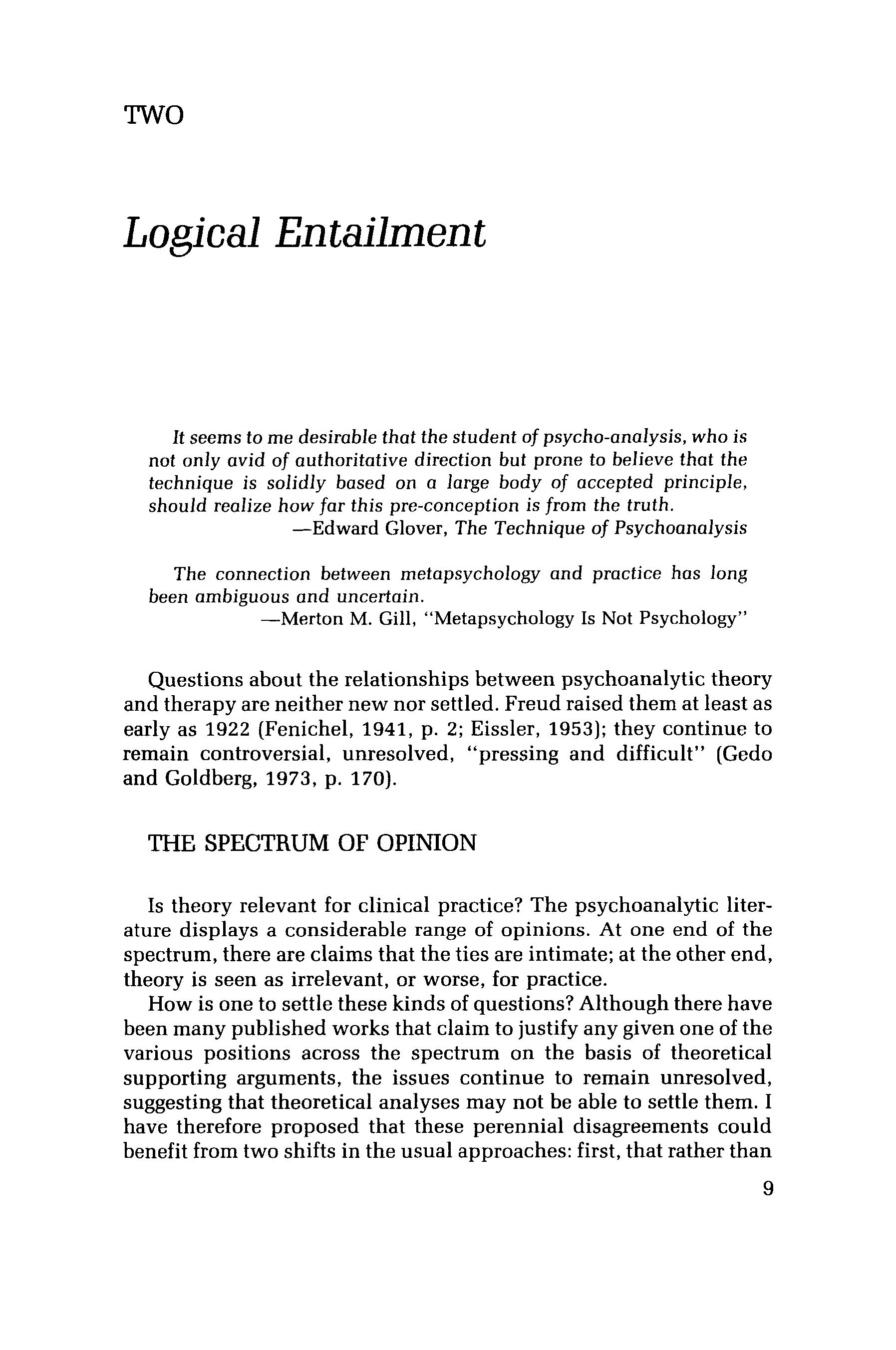
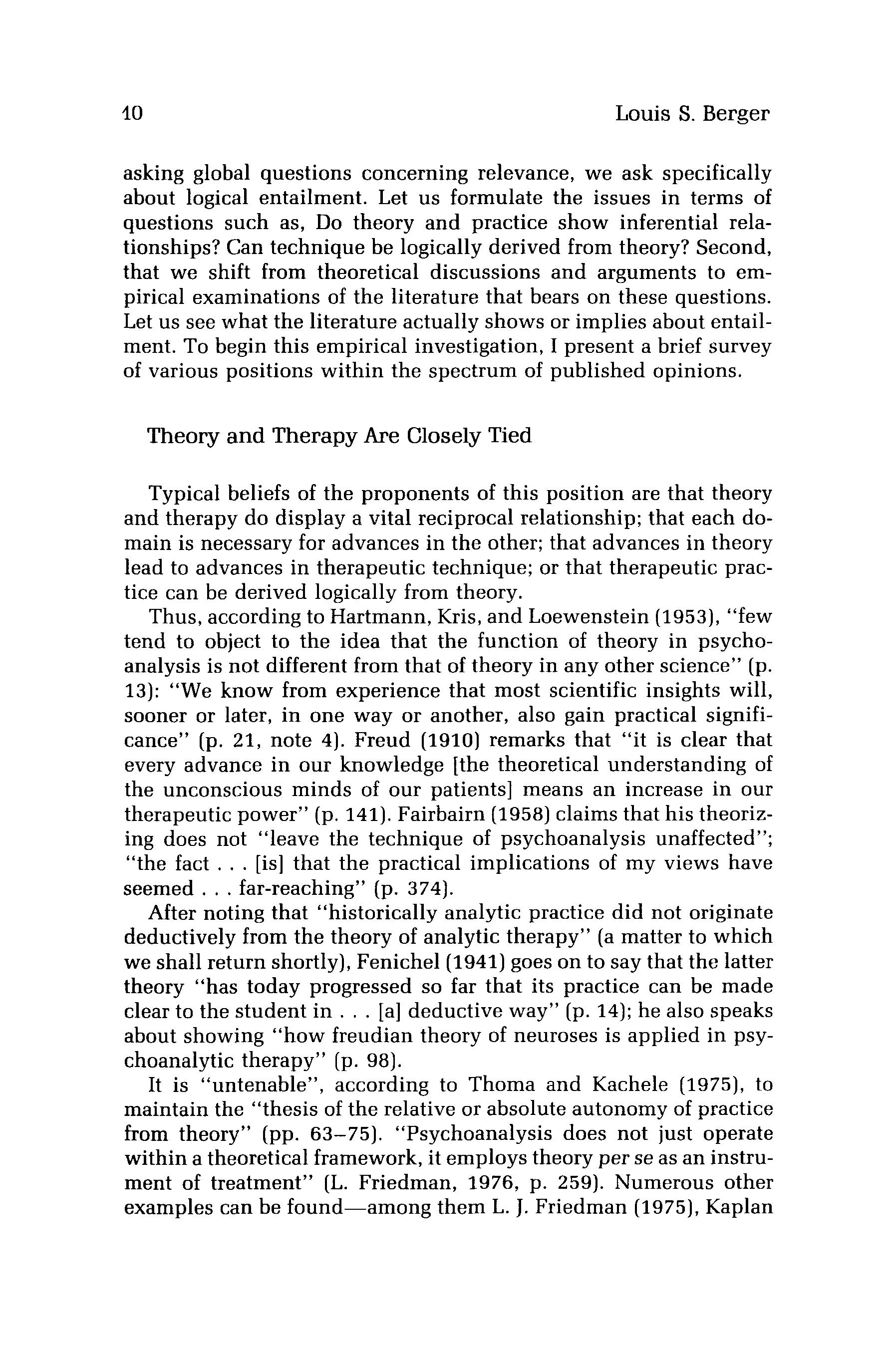
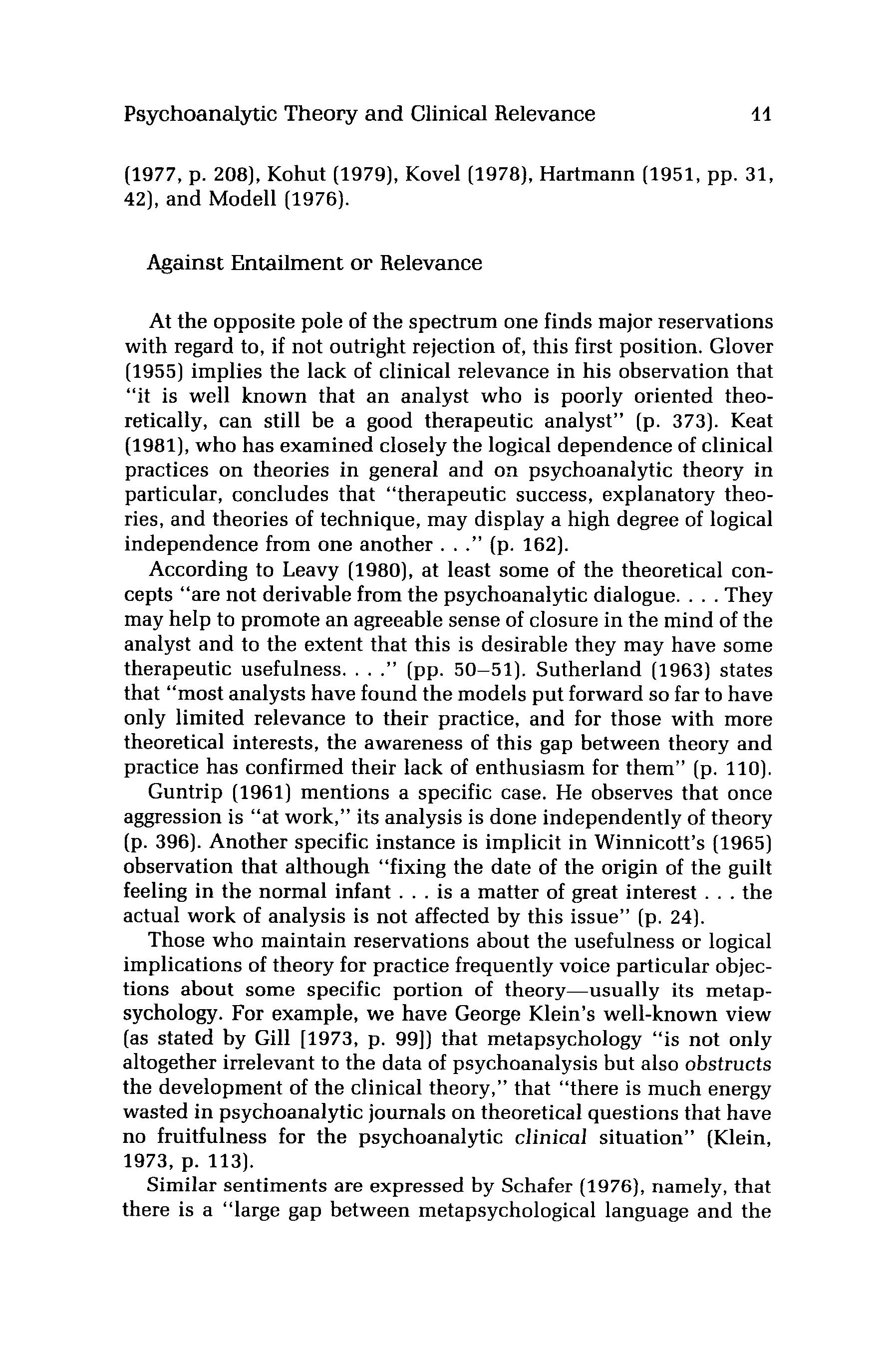
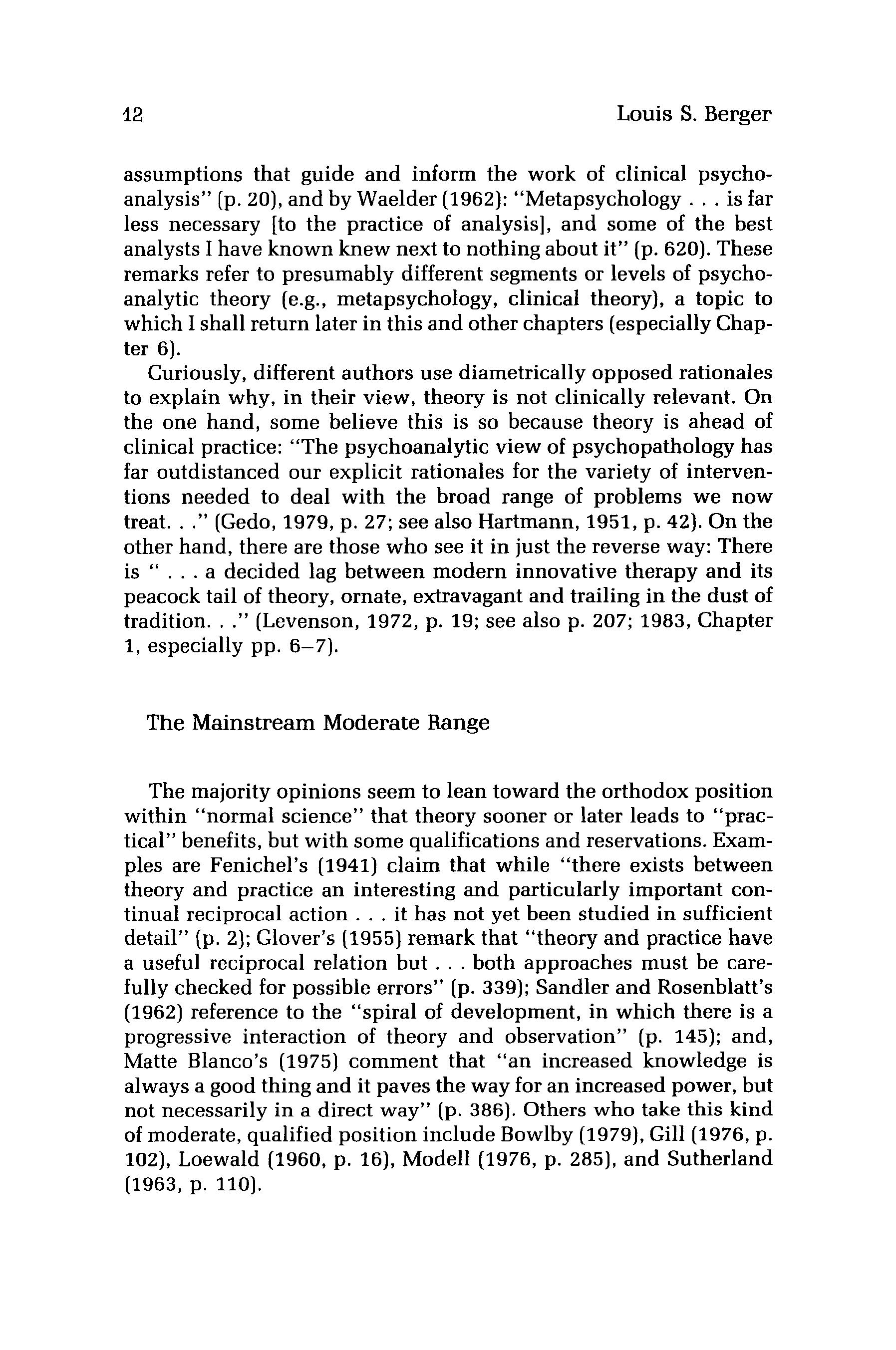
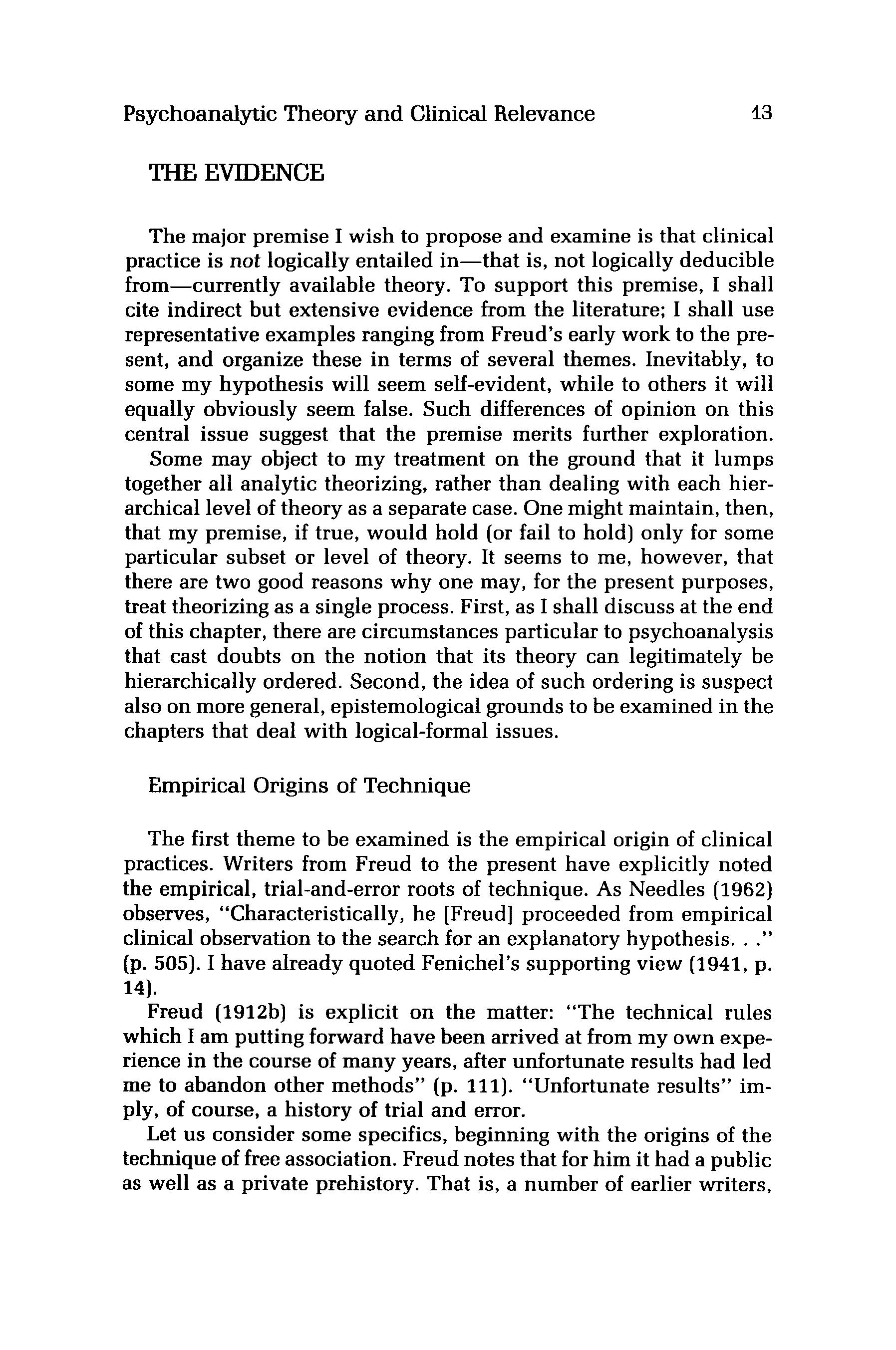
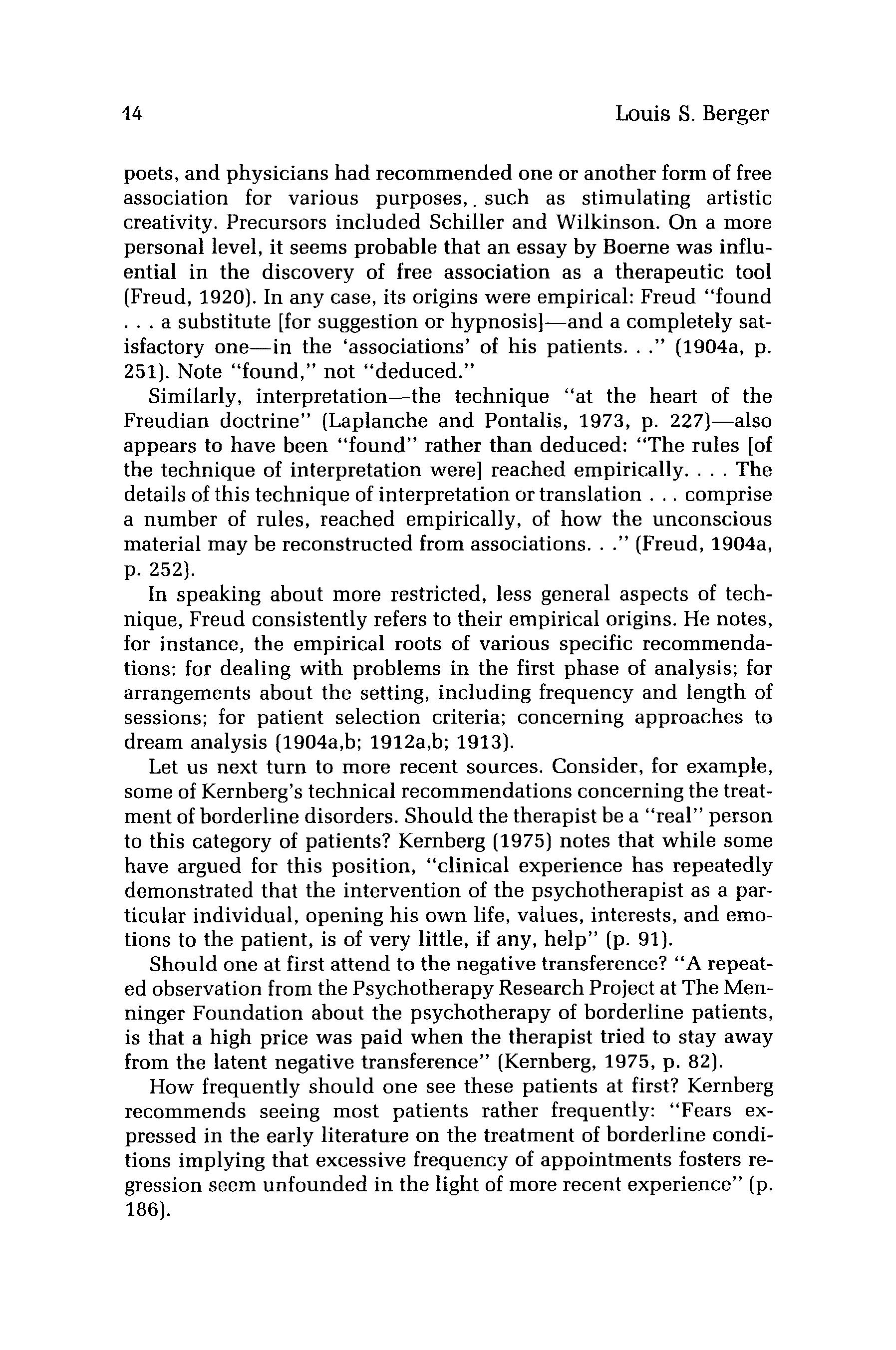
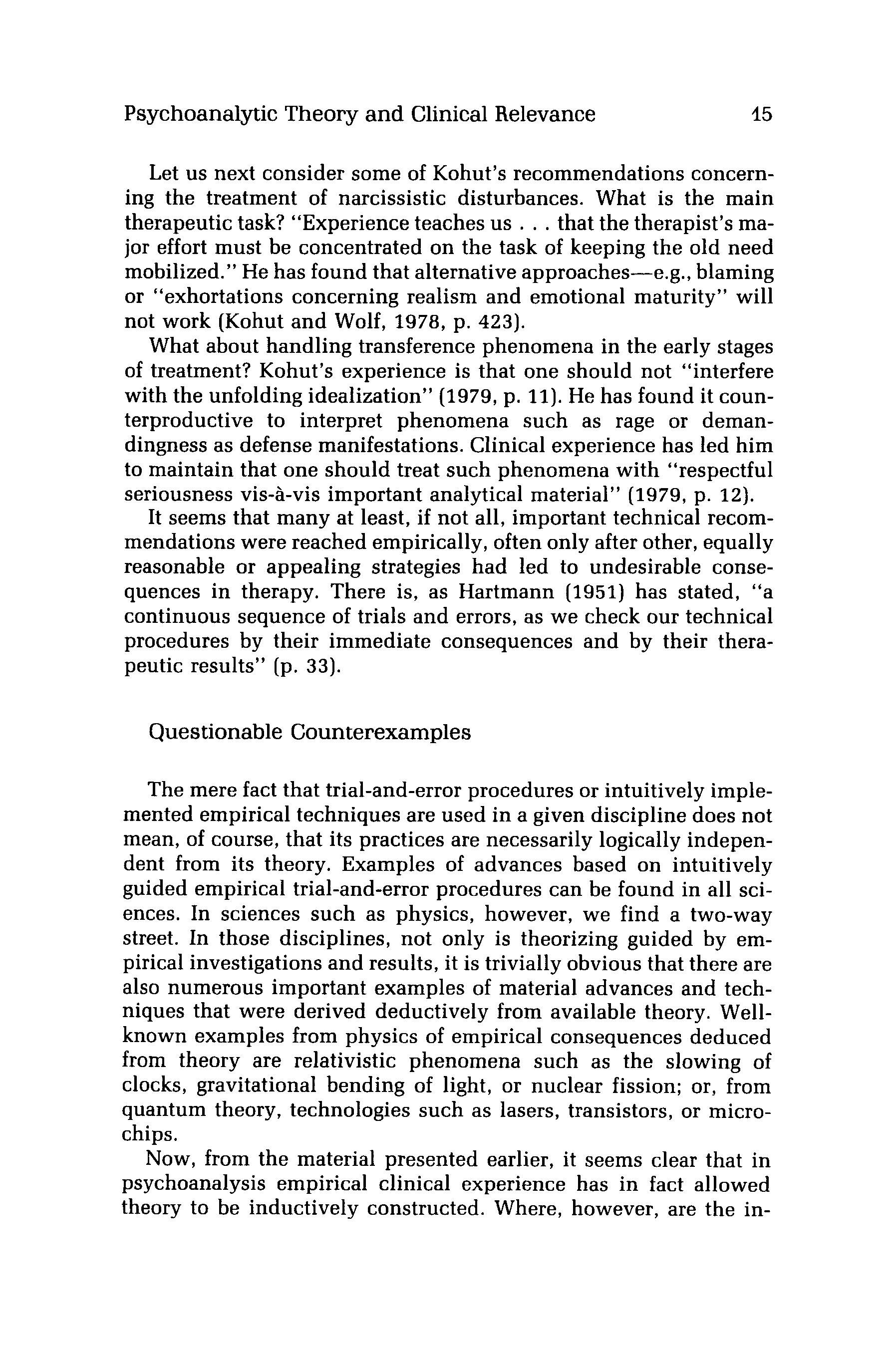
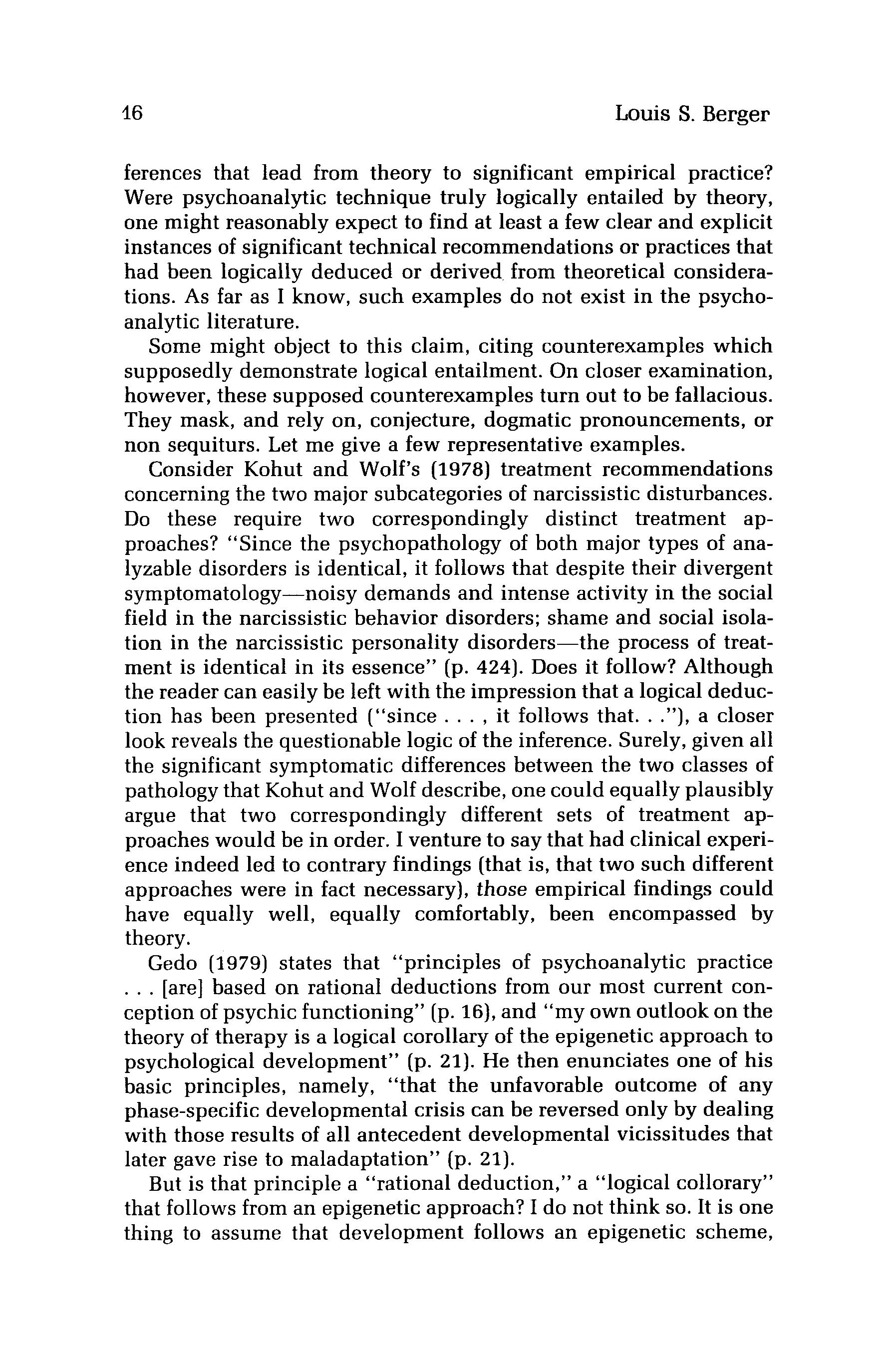
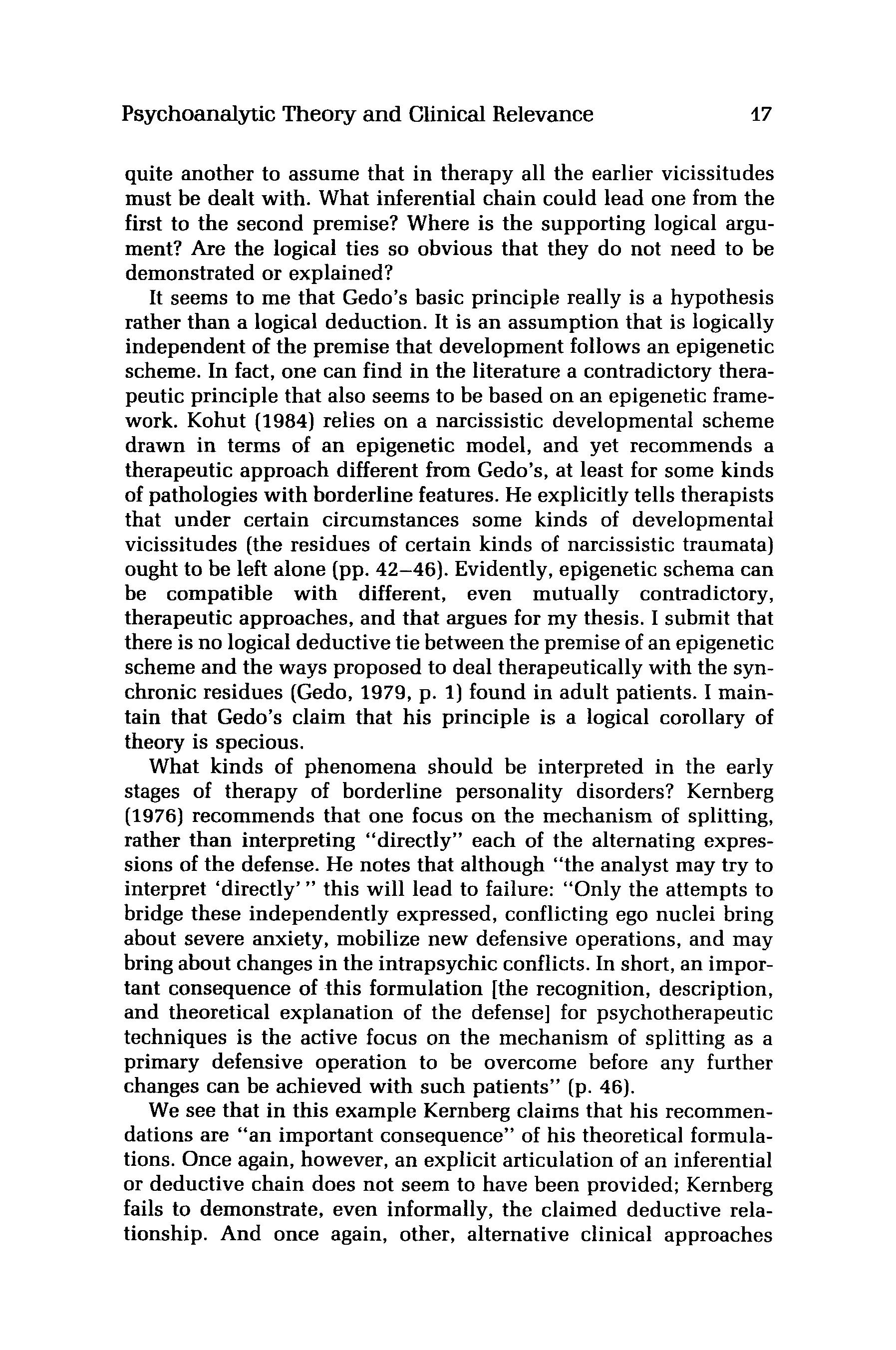
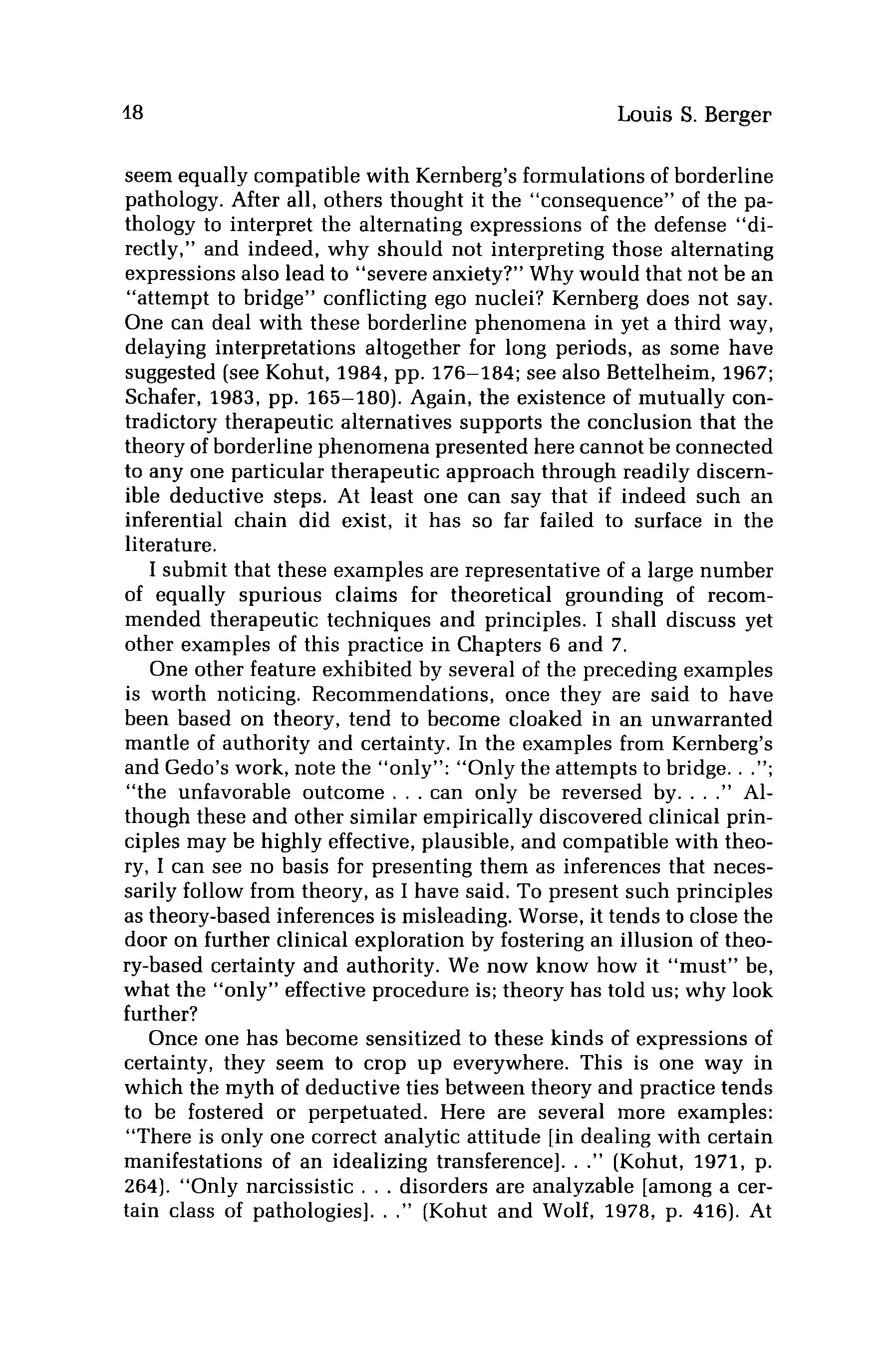
Another random document with no related content on Scribd:
Americans have known the French only superficially, and that, in thinking and speaking of them, we have indulged in the careless and inaccurate habit of generalization. We have subscribed to the tradition of the superficiality and frivolity of the French people. We have believed them lacking in seriousness and perseverance, a strange misunderstanding of the race which has produced Richelieu and Talleyrand and Robespierre, La Salle and Marquette and Champlain. We thought them volatile and temperamental, these countrymen of Bossuet and Montesquieu, of Pascal and Corneille. We were wont to say quite patronizingly that French soldiers, though they possessed verve and élan, were not stayers and “lastditchers”—this of the men of the Marne and Verdun! The trouble has always been not with France, but with ourselves. The France that we knew before this war gave us a broader vision was the France of Rue de la Paix and the Champs Élysées, of Montmartre and the Latin Quarter, of the Louvre and the Luxembourg, of Longchamps and Auteuil, of Poiret and Paquin, of Giro’s and Voisin’s, of the Bon Marché and the Galeries Lafayette, of the Opéra and the Comédie Française, of the Riviera and Trouville and Aix-les-Bains. What have we known of the sober, simple-hearted, industrious, frugal, plainliving, deeply religious people who are the real France? France has not been reborn. It is an affront to her to say it. She has but cast aside the glittering garment which she wore for the gratification of strangers in order to free her sword arm.
If you would understand the spirit which animates the French people, read this letter which was written by a French cook to his wife the day before he was killed in action. It is but a sample of thousands.
My dear Yvonne:—
Do not worry. I have good hope of seeing you again, as well as our Raymond. I beg you to take care of yourself and also of my son, for you know that I should never forgive you if anything should happen to you or to him.
Now, if by chance anything should happen to me,—for, after all, we are in war, and of course we are running some risk,—I hope you will be courageous, and be sure
that if I die I put all my confidence in you, and I ask you to live in order to bring up my son to be a man—a man of spirit—and give him a good education as far as your means will permit.
And above all you shall tell him when he is grown up that his father died for him, or at least for a cause which should serve him, as well as all the generations to come.
Now, my dear Yvonne, all this is but a precaution, and I expect to be there to aid you in this task; but as I have said, one never knows what may happen. In any case we are leaving (for the front) all in good spirits and in the firm belief that we shall conquer.
As to you, my dear Yvonne, know that I have always loved you and that I will love you always no matter what happens. As soon as you can, leave for Fontenay, for on my return I should prefer to find you there; and once more let me say that I count on you, and that you will be brave.
I will give you no more advice, for I believe that would be superfluous.
Your little husband, who embraces you tenderly, as well as dear Raymond—
G������
America’s entrance into the war is the surest guarantee that the world can have for a peaceful future. Our practically inexhaustible military, financial, industrial, and agricultural resources give us all the trump cards. We can double and, if necessary, redouble, every bid that Germany makes. We must beware, however, of one pitfall: of assuming that the war is going to be a short one. England, notwithstanding the solemn warnings of Lord Kitchener, made that mistake at the beginning of the war, and she has paid for it in blood and tears. Though we are warned with all earnestness by the men who are best qualified to know that peace is not in sight, and probably will not be in sight for many, many months to come, one nevertheless hears on every hand the confident assertion that
Germany is on her last legs, that the morale of her armies is weakening, that her supply of men is almost exhausted, that her people are starving, and that American troops will never get within sound of the guns because the war will be over before they can be made ready to send to France. There is no surer way to prolong the war than to indulge in such talk as this. Why deceive ourselves? Let us look the facts in the face. Germany is not starving, nor is there any prospect of her being brought to that point for a long time to come, if, indeed, at all. Her man-power, though greatly depleted, is not giving out. Her morale apparently remains unimpaired; in short, her military machine still seems impregnable. Remember, moreover, that she is everywhere fighting on the enemy’s soil and that her own frontiers remain intact. The extreme gravity of the situation was recently made plain to the Canadian Parliament by the Premier, Sir Robert Borden, in these words: “A great struggle still lies before us, and I cannot put it before you more forcibly than by stating that at the commencement of this spring’s campaign Germany put into the field a million more men than she put into the field last spring. And that million was provided by Germany alone and not by the whole of the Central Powers.” There is, indeed, nothing to indicate at this time that the German Government is prepared to negotiate peace save on impossible terms. It has been a fallacy, and nearly a fatal one for the Allies, this underestimating the power of Germany. She has, as some one has truthfully said, made of war “a national industry.” She is a professional, while the rest of us are, after all, but amateurs, and she has repeatedly shown, moreover, that she has not the slightest intention of adhering to the rules laid down by civilized nations for the conduct of the game. She has spikes on her boots and brass knuckles on her fingers, and she will not hesitate to gouge or kick or strike below the belt. She is a ferocious, formidable, and desperate adversary, possessed of immense staying power, and the only way we can hope to crush her in reasonable time is by intelligent coördination of effort, by the fullest and most painstaking preparation, and by the exertion of every ounce of our strength.
Don’t let us be deceived by the made-in-Germany talk of an early peace. In accepting it we are only playing the enemy’s game. In every possible way Germany is throwing out the idea that the end of
the war is in sight. She is doing this because she knows that she has reached the crest of her military strength. She is at “the peak of the load.” She knows that every day she is weaker by so many men, and that she no longer has any considerable reserves from which to replace these losses. She is ready and anxious to quit—upon her own terms. But she is prepared to fight a long, long time yet before accepting the terms that we and our allies must insist upon in order to safeguard the future peace of the world. The mere appearance of American troops upon the battle-line is not going to end the war, as so many of our people seem to think. Not until America begins making war as though she was facing Germany alone will it be possible to predict with any certainty when the end will come.
The truth of the matter is that the American people utterly fail to realize the seriousness of our situation. In fact, the Government itself did not realize its gravity until from the lips of the French and British commissioners it learned the startling truth. Up to the moment of our entrance into the war the Allied Governments, controlling all the channels of information, had so successfully fostered the impression that they had the Germans on the run, that all of our people, save a handful who were in possession of the facts, looked to see the war end in a sweeping victory for the Allies before the close of the present year. The truth of the matter is that, had we remained aloof, the war would in all probability have ended before this year was over, but not in a victory for the Allies. The almost pathetic eagerness with which the Allied Governments welcomed our proffered aid in money and men is the best proof of how desperate was their plight. Here are the facts: Germany’s submarine campaign is an almost unqualified success. Unless we can successfully and immediately combat this menace, England is in grave danger of being brought within measurable distance of starvation. France is rapidly approaching complete military and economic exhaustion. The drain upon her vitality of nearly three years of war has left her faint and gasping. Though she has inflicted huge losses upon the enemy, her own losses have been enormous, and, with her much smaller population, she is less able to stand them. It is not the slightest exaggeration to say that France is in as crying need of American assistance as were the American Colonies when Rochambeau and
his soldiery disembarked upon these shores. Should the Russian Republic be betrayed into making a separate peace—and, at the moment of writing, the Russian prospect is anything but cheering— the Central Powers would have released for use upon the Western Front not less than two million veterans. The war has become, indeed, a race between ourselves and Germany. Can we build foodships faster than Germany can sink them? Can we raise enough food to feed our allies as well as ourselves? Can we put more men and guns upon the Western Front than Germany can? Upon the answers to these questions depends the duration and decision of the war.
If we are to win this war it will be necessary for us to practise selfdenials, to endure hardships, perhaps to know sorrows of which we have never dreamed. We must hold back nothing. Our sheltered, ordered, comfortable lives will be turned topsy-turvy. There will be no man, woman, or child between the oceans which this war will not in some way affect. It will impose burdens alike on the rich and the poor, on the old no less than on the young, on women as well as on men. It will entail innumerable sacrifices, many of which will be hard and some of which will seem unjust, yet we must accept them cheerfully.
If millions of our young men are prepared to give up their lives for their country, is it too much to ask the rest of us to give up for a time our comforts and our pleasures?
The civilian must do his duty no less than the man in khaki. And “duty,” at this time, has many meanings. It is a duty to pay taxes. These will, without doubt, be increased again and again and yet again before this war is over, and in many cases they will be directly felt. The man who dodges taxes when his country is at war is more deserving of contempt than the soldier who shows the white feather on the firing-line, for whereas the one fears for his life the other fears only for his pocketbook. It is a duty to raise foodstuffs and to give every possible encouragement to others to do so. The householder who refuses to plough his yard and plant it to vegetables because it would spoil the looks of his place is as much a slacker as the man who attempts to evade his military obligations. It is a duty to refrain
from every form of extravagance. By this I do not mean to imply that people should suddenly stop buying, but only that they should stop buying things that they do not need or that they can get along without. For how, pray, are we to place some seven billion dollars of purchasing power at the disposal of the Government unless we curtail our individual expenditures? And it is the duty of our merchants and business men to promptly cease their gloomy prophecies that an era of national economy will bring on a paralysis of trade and industry. As a matter of fact, it will do nothing of the sort. There is far more danger of there being a lack of workers than there is of there being a lack of work. Already there is more work in sight than can possibly be done. The shipyards, the steel-mills, the clothing-factories, the munitions plants, the mines, the farms, the railways are all clamoring for it, and they will clamor for labor still more insistently when a million or so men have been taken out of industry for the army. It is a duty to keep cool, to think sanely, to avoid hysteria. It is a duty to refrain from giving circulation to sensational rumors. It is a duty to refrain from nagging the Government, for the Government is, you may be sure, doing the best it can. And finally, it is a duty to buy your country’s bonds. Buy all you can. Take that ten or hundred or thousand dollars that you have been saving for some cherished personal purpose and invest it in the Liberty Loan. That is the most practical way I know of showing that your patriotism is not confined to words.
There is another form of sacrifice which the American people will inevitably be called upon to make, and that is to accept without complaint the heavy restrictions which the Government will find it necessary to put on their private activities. The Government must have the first call on coal, iron, steel, timber, chemicals, on supplies of every kind, and particularly on transportation and labor. The sooner the public gets over the idea that we must have “business as usual,” the better. The country must immediately awake to the fact that we cannot carry on a war like this with one hand and continue to do all the business we did before with the other. We can no more expect to change from peace conditions to war conditions without business inconvenience and loss than we can expect to send an army into battle without having killed and wounded. We must,
therefore, adjust our business and personal affairs so as to support the army with the greatest possible efficiency, and we must do it with the least possible delay. The woman who orders a gown which she does not need is not helping labor to find employment, as she likes to think; she is preventing a soldier from having a uniform—for how is labor to be had for making uniforms unless it is released from making other clothes? Our soldiers must have blankets—but how are those blankets to be had unless the looms are released from something else? How is steel to be had for food-ships and field-guns and destroyers unless there is a prompt curtailment of its use for other purposes? If one of your pet trains is suddenly discontinued, don’t grumble, but just stop to remember that the Government needs that train and its crew for the purpose of moving troops and munitions. If your favorite restaurant curtails its menu, bear in mind that it has been done by order of the Government, which recognizes the imperative necessity for food control. It is a stupendous task that we have undertaken, and it will require every particle of grit and staying power that we possess to see it through.
I would that every man and woman in these United States might show the spirit which led the third-year cadets at West Point, who were this summer entitled by law and custom to the one furlough a cadet has in four years, to unite in waiving their right to these two months to which they had looked forward so long and so eagerly and for the spending of which they had made so many plans, and to offer their services to the Secretary of War in any work for which he thinks them fitted. In writing to his parents to explain why he would probably not be home on the long-talked-of furlough, one of these cadets said:
—
“You know, as cadets, we haven’t anything but these two months to give, so we thought if we offered all we had it would maybe be worth while, even if it wasn’t much.”
How about it, my friend? Have you offered your country all you have to give?
There are doubtless those who sometimes ask themselves, though they may deem it the part of wisdom not to ask others, “Even if the
Germans were to win this war, what difference would it make anyway?” Well, just for the sake of argument, suppose that our European allies had been forced to sign a separate peace and that Germany, thus left free to give us her undivided attention, had landed an army on these shores (which she could do with comparatively little trouble, the military experts agree) and held a portion of our Eastern seaboard. And suppose that one evening a column of men in gray came tramping into the little town where you live—Quincy or Tarrytown or Plainfield or New Rochelle, which it doesn’t matter And suppose that the first thing they did after establishing themselves in your town was to arrest the mayor and a score or so of the leading citizens—some of your closest friends, members of your own family, perhaps, among them—and lock them up in the jail or the town hall. And suppose that the next morning, when you start down town, your eye is caught by a notice tacked to a tree. The notice, which is headed by the Prussian eagle, reads something like this:—
PROCLAMATION
In future the inhabitants of places situated near railways and telegraph lines which have been destroyed will be punished without mercy (whether they are guilty of this destruction or not). For this purpose hostages have been taken in all places in the vicinity of railways in danger of similar attacks; and at the first attempt to destroy any railway, telegraph, or telephone line, they will be shot immediately.
T�� G�������
And supposing, still for the sake of argument, that that same evening some one, ignorant of the German threat or wishful to hamper the invaders at any cost, succeeds in destroying a bridge or cutting a telegraph line. And that, early the next morning, you are awakened by a sudden crash, as though many rifles were fired in unison. And that, hurriedly dressing, you hasten down town to learn what has happened. And that, turning into the main street, you see a row of bodies—the bodies of men some of whom you had known all your
life, men with whom you had gone to college, men who were fellow lodge-members, men with whom you had played bridge at the club, the body of your father or your son or your brother perhaps among them—sprawled on the asphalt in grotesque and horrid attitudes amid a slowly widening lake of crimson. Suppose that this dreadful thing happened, not in some European town of which you had but vaguely heard, but in your own town—in Newburyport or Yonkers or Princeton, which it doesn’t matter. Then would you ask “Even if the Germans were to win this war, what difference would it make anyway?” The proclamation just quoted is not imaginary It was signed by Field Marshal von der Goltz when German governor of Belgium and was posted on the walls of Brussels in October, 1914. I saw it there myself. It is to destroy the monstrous system which permits and approves the execution of people “whether they are guilty or not” that we have gone to war. For if we don’t destroy it, it will most certainly destroy us. The trouble is that we stubbornly shut our eyes to the gravity of the situation which confronts us; we have not aroused ourselves to the colossal magnitude of our task. Sacrifices and sorrows without number await us. Before this business is over with, we must expect to be deprived of many of our comforts and most of our pleasures. We must be prepared to accept without grumbling the imposition of very burdensome taxes. We must be prepared to make countless personal sacrifices, to submit to innumerable annoying restrictions. We must expect months of discouragement and heart-breaking anxiety and gloom. We must gird ourselves for those dark days when the lists of the wounded and the dead begin to come in. For such will be the price of victory.
The surest way to bring about an early peace is to convince Germany, beyond the possibility of misunderstanding, that we stand behind the Government to the last cent in our purses and the last breath in our bodies; that in our vocabulary there is no such word as “quit”; that, no matter how appalling the price that may be exacted from us, we shall not relax our efforts by one iota until the world has been “made free for Democracy” forever.
